This article previously appeared on Crossfader
Crossfader Editor-In-Chief Thomas Seraydarian, Film Editor Sergio Zaciu and guest contributors H. Nelson Tracy, Alexander Larios, Jon M., and Ethan Cartwright attended the 2017 AFI FEST in Hollywood, California! Here’s a roundup of the films we caught during the festival (starting with those that left us cold, and ending with those that had us begging for more)!
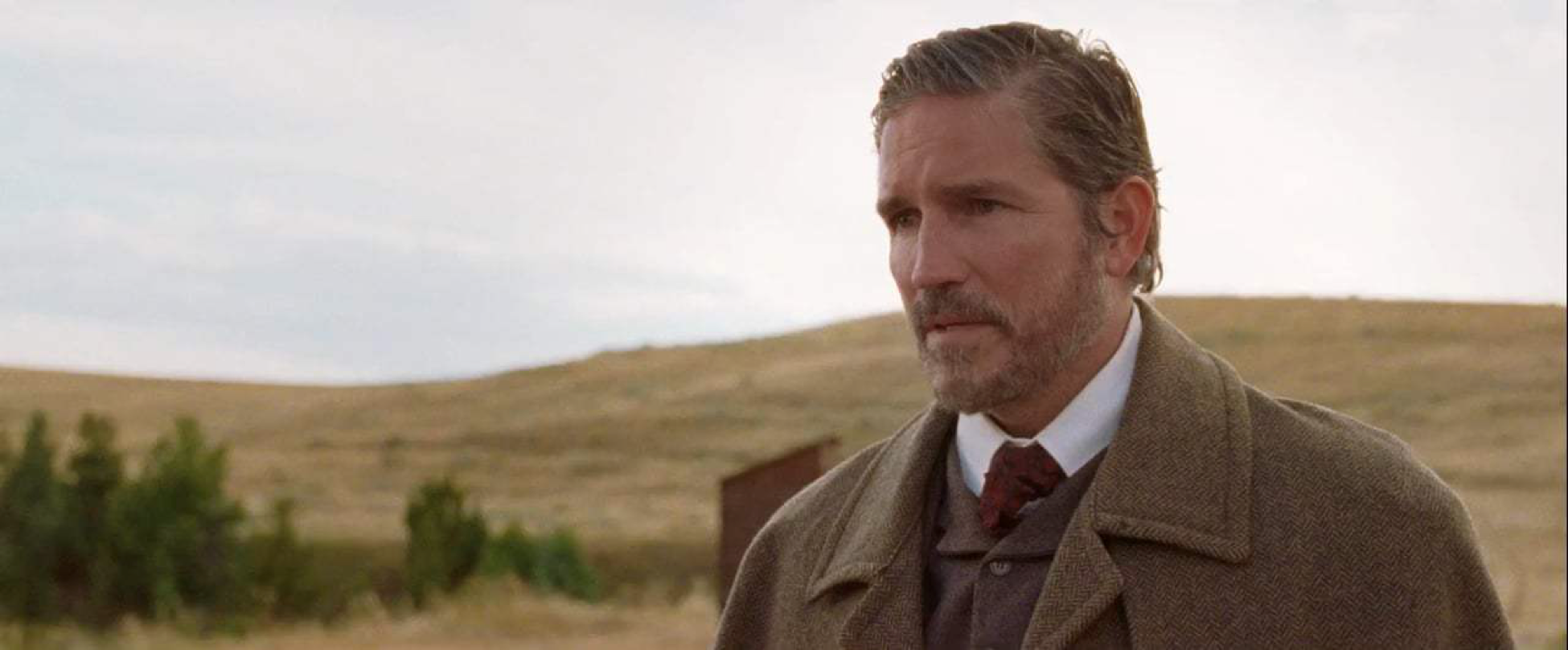
THE BALLAD OF LEFTY BROWN
Director: Jared Moshe
Genre: Western
Anybody who knows me is aware of the fact that I’m a die-hard Western apologist. The absurd truth is I’ll watch anything under the sun that takes advantage of this milieu. I’m not being flippant, either—I’ve seen THE SALVATION from start to finish, and let me tell you, I hated it from the first minute, but by God if I don’t love myself a shot-up duster. Which brings me to AFI Fest’s screening of THE BALLAD OF LEFTY BROWN, a film that I’m quite upset the festival had the gall to program. It’s the first time since seeing OUTLAWS & ANGELS at the 2016 Sundance Film Festival that I thought to myself, “Hey, was this only programmed because it was shot on film?” To which I quickly responded to myself with, “Yes . . . that’s exactly what happened.” The strange thing is that I’m pretty sure THE BALLAD OF LEFTY BROWN wasn’t even projected in glorious 35mm, virtually negating its existence at the festival entirely. And I say this with utmost respect for AFI Fest, but what were you thinking? This is the most trite, derivative, lackluster film I’ve seen in months, and easily takes the cake as one of the most bland Westerns I’ve ever seen. It doesn’t help the film that AFI Fest had no shortage of Westerns either, only further proving that director Jared Moshe put out a work so pedestrian it fits into an early aughts bargain bin. That isn’t to say THE BALLAD OF LEFTY BROWN is ugly, in fact it can be kind of pretty at times, but the abysmal dialogue, the cardboard characters, and the predictable plot give it the mileage of a rundown pickup truck.
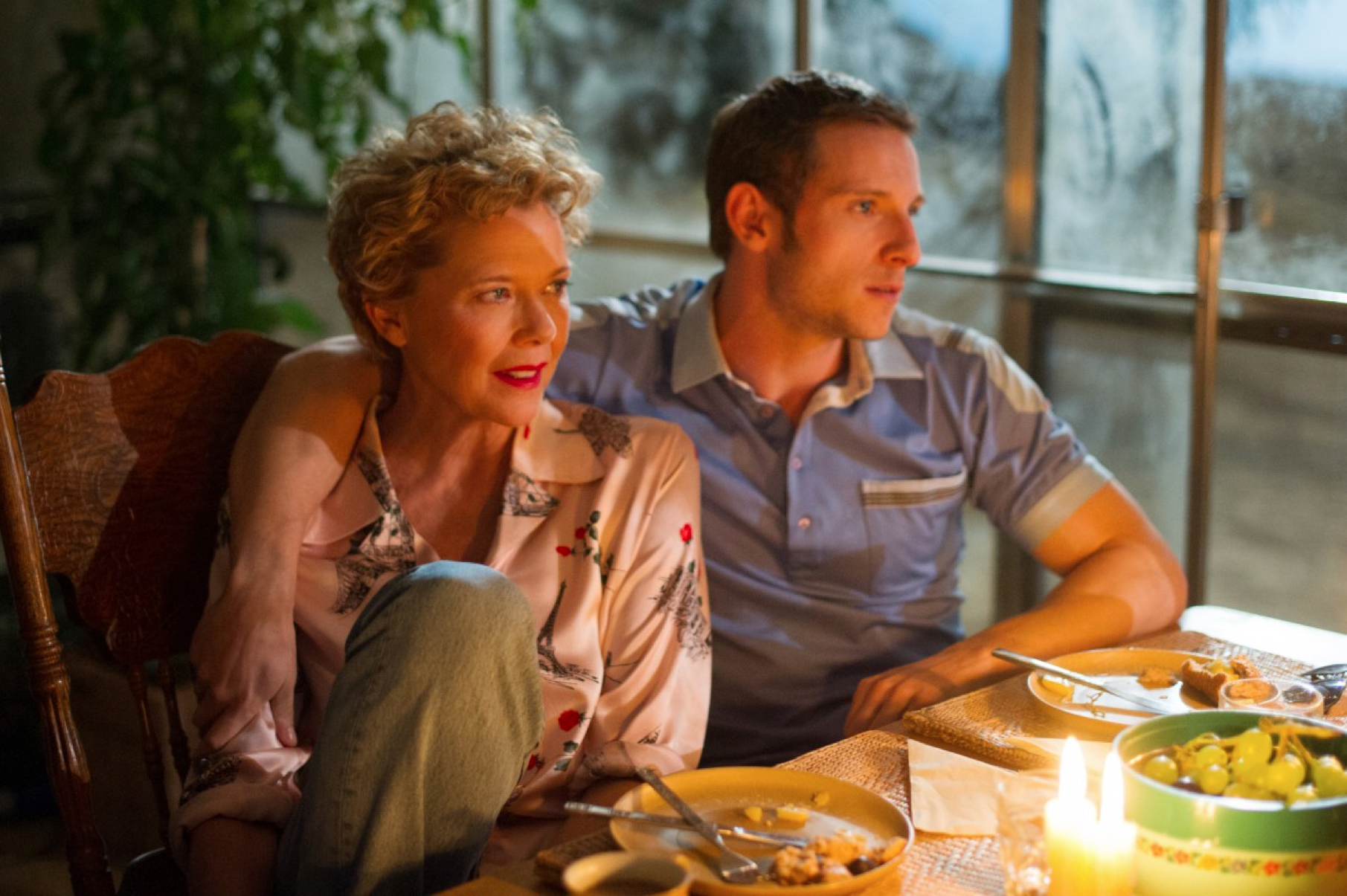
FILM STARS DON’T DIE IN LIVERPOOL
Director: Paul McGuigan
Genre: Drama, Biopic
Bar none one of the most uninspired entries at this year’s AFI Film Festival was FILM STARS DON’T DIE IN LIVERPOOL, a woefully stock cancer-love-story-biopic-melodrama that absolutely nobody asked for. And I’m not being facetious. Why did we need a Gloria Grahame biopic, let alone one in the vein of the already tepid MY WEEK WITH MARILYN? Perhaps what bugs me most about director Paul McGuigan’s film is that he had the pieces in place to at least deliver something special, but the film seems so hell-bent on impressing its audience with nifty, in-camera geographical transitions (come on guys, I know what a soundstage is) that it all but forgets to honor inventive storytelling. For a romantic drama, McGuigan really doesn’t have much of a grasp on his film’s point of view, never committing to his male lead (Jamie Bell) with the urgency that the film’s narrative clearly demands. Instead, we seesaw between differing points of view, sometimes shining a light on a strong performance, but mostly deflating the stakes of the film’s narrative. After all, when a character’s biggest dilemma is a 24-hour layover in Manila, I can’t really feel too sorry for them. And I get it, viewers eat up movie star gossip like few other cinematic genres—even if the star has been dead since 1981—and the Academy is sure to at least show some interest in Annette Benning’s radiant performance as the dazzling, eccentric starlet, but let’s get real; it’s 2017, MOONLIGHT beat LA LA LAND at the Academy Awards, I think we’ve hit critical mass with Hollywood filibustering about Hollywood.

MR. ROOSEVELT
Director: Noël Wells
Genre: Comedy
It’s honestly a shame that MR. ROOSEVELT has such a hilarious opening, otherwise I’d have a much easier time flat-out panning the entire ride. In an indie scene densely populated by somewhat-funny, somewhat-charming, somewhat-eccentric stand-up comics, MR. ROOSEVELT is the thorn in my side: the textbook example of everything I’ve come to loathe about semi-autobiographical stand-up comic dramedies. It’s never dramatic enough to make me care, never funny enough to make me cheer. Instead, it delivers a consistent, tepid set of gags, all wrapped around the oh-so defunct qualities of our woefully quirky protagonist. And I say quirky with purpose, because MR. ROOSEVELT makes a huge point to talk down on the use of that word, but for what it’s worth, there’s no better way to articulate everything wrong with this film. MR. ROOSEVELT is quirky in the exact manner of people who love using that word. It’s fun with a question mark, a film that you’d like to say positive things about, but frankly can’t think of the words. It’s all been-there-done-that: a relatable, but easy directorial debut that only got half the attention it did because it was shot on film.

IN THE FADE
Director: Fatih Akin
Genre: Thriller
IN THE FADE, Germany’s entry for Best Foreign Language Film this year at the Oscars, starts out strong in its first act, teeters in the middle, and ultimately succumbs to mediocrity in the finale. It’s almost as if director Fatih Akin couldn’t decide whether IN THE FADE should have been a mournful meditation on the grief of losing loved ones unexpectedly, a tense courtroom drama, or a dark revenge thriller. The only thing truly holding up the film is Diane Kruger, who turns in a powerful performance and keeps the movie from sliding further. Kruger plays Katja, a woman grieving the loss of her husband and young son in a terrorist bombing. Since Katja’s husband was both a former drug dealer and a Turkish immigrant, the authorities at first assume the bombing was related to his drug connections. IN THE FADE could have served as a brilliant look into how both ex-convicts and immigrants are treated in modern Europe, as well as an excellent examination into the trauma that follows losing a loved one in a terrorist attack. There are some strong moments in the film, particularly the tension Akin expertly creates within the courtroom sequences and the last 15 minutes of the film. Even those few intense scenes and Kruger’s magnificent acting can’t save IN THE FADE from the lackluster and indecisive writing and a prolonged ending that probably should have been left ambiguous. It might be worth a watch, if only for Diane Kruger, but definitely not a film that will be remembered.

LET THE SUNSHINE IN
Director: Claire Denis
Genre: Drama
To my surprise, LET THE SUNSHINE IN squarely registered as the biggest letdown of the entire festival. Though I’ve never been able to fully support Denis’s work on account of her politics— although informed by a postcolonial context, her work is marked by a keen fear of eroding colonial dynamics—LET THE SUNSHINE IN is the first time her craft has been called into question. To be frank, it isn’t even apparent that this is a Denis film in the first place; though I don’t want to give way to petty auteurism, LET THE SUNSHINE IN is nothing more than a star vehicle, without any of the thoughtfulness one rightfully could expect from the director who debuted with a film as daring as CHOCOLAT (1988). Gone is the quiet, contemplative style, replaced with wordy screwball comedy, and phoned-in examples of such at that. For it to have even crossed Denis’s mind to use Etta James’ clichéd hit “At Last” is a testament to how poorly conceived a project this is. Though perhaps not “bad” (Juliette Binoche is good as ever, as is Gerard Depardieu in a scene-stealing role), this is far and away a minor picture at best.
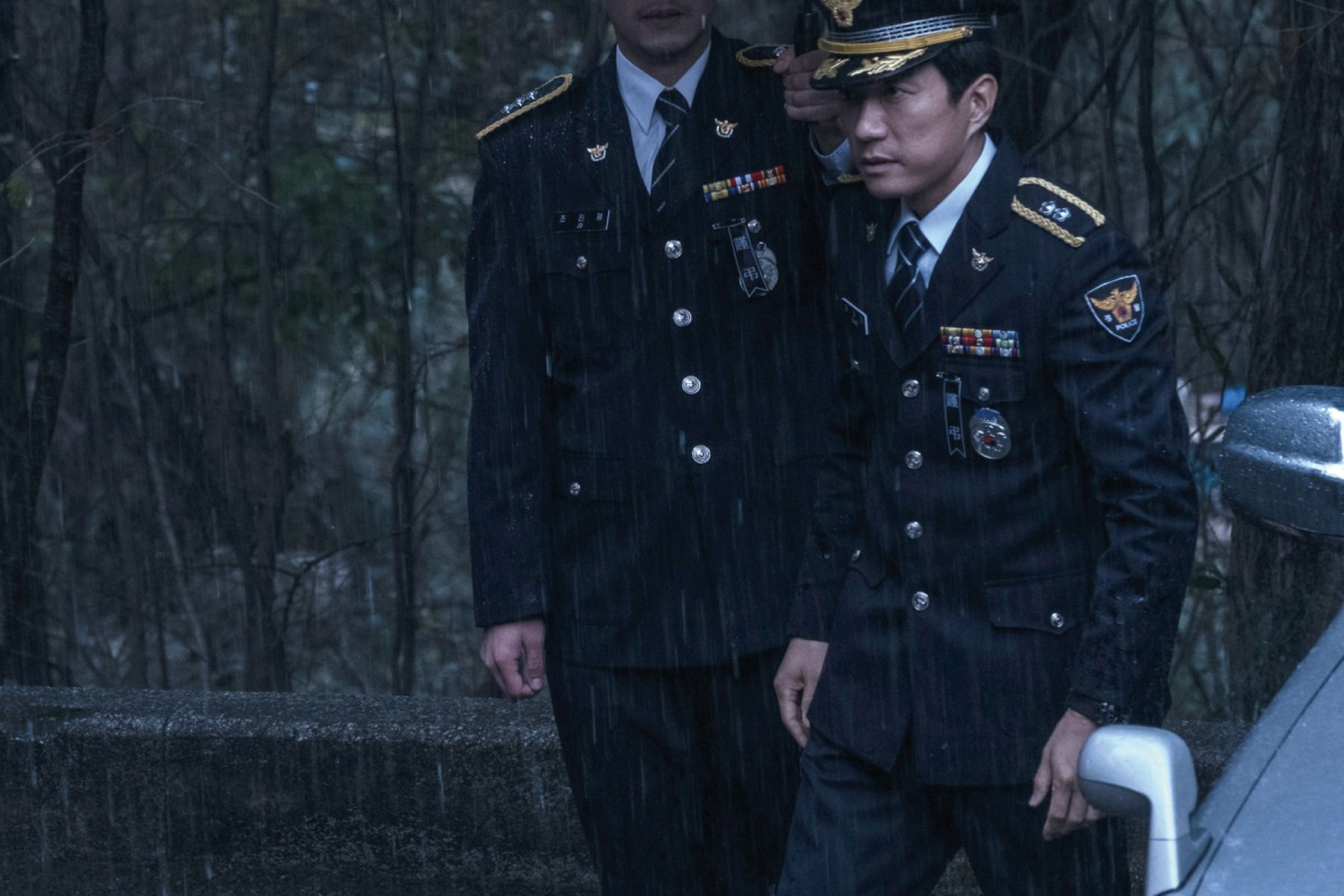
V.I.P
Director: Park Hoon-jung
Genre: Drama
Whereas last year’s AFI Fest had Kim Ki-duk’s THE NET tackling the friction between North and South Korea in an extreme yet mature fashion, Park Hoon-jung’s crime thriller V.I.P. ultimately blinds audiences from any important political underpinnings by having its torturous violence reach way past exploitative levels. Several instances of sexual violence around the world is found to be the work of one Kim Kwang-il, the son of a high ranking official in the North Korean regime, menacingly played by smirking pretty boy Lee Jong-suk. He is pursued by several entities, including the South Korean National Intelligence, local Seoul police, a disgraced former North Korean policeman in Park Hee-soon’s Ri Dae-bum, who tried and failed to snuff Kwang-ik early on, and CIA agent Paul Gray, played by an underutilized Peter Stormare. There are one or two interesting turns V.I.P. takes with deaths and double-crossing aplenty (though you can guess how treacherous the West eventually is depicted), but by the end, the experience is left as shamelessly gratuitous and empty. Where THE NET lectured with its onscreen brutality, Kwang-il’s victims are mostly devices. Strong stomach or not, this one is a definite skip.
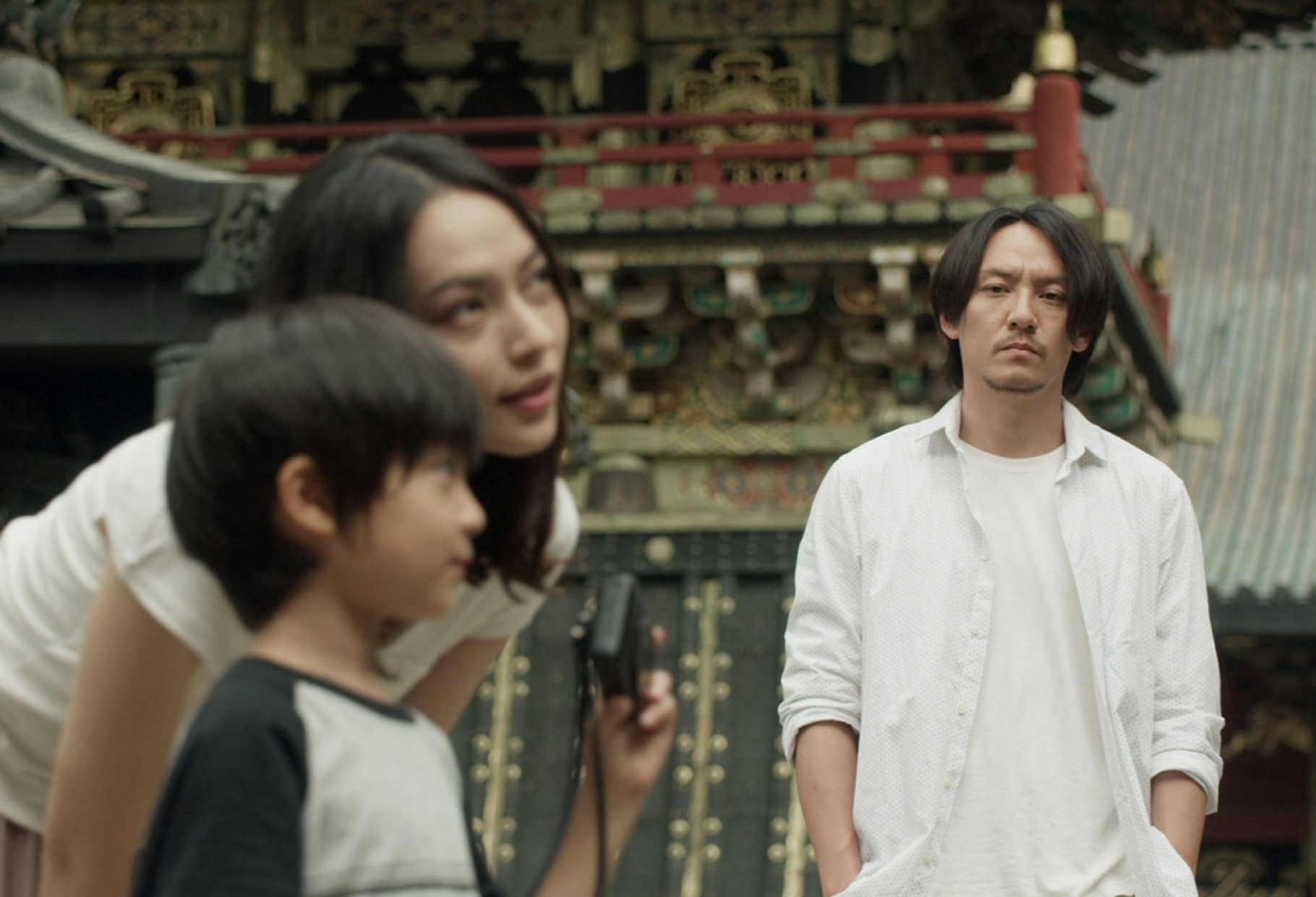
MR. LONG
Director: Sabu
Genre: Action
So close to being good, but held back by its own self-interests, MR. LONG is phenomenal when it’s a cute, eccentric tale of a mute assassin’s rediscovery of self. Unfortunately, it’s a complete bust whenever it’s trying to be an action film. Too edgy for its own good, and padding its running time to a whopping 129 minutes, MR. LONG really does live up to its moniker. It’s a film that works wonders when it plays with the juvenile friendship of our silent protagonist and a little boy, and really shines whenever our anti-hero prepares food for the local townsfolk. That is to say, MR. LONG is kind of awesome whenever it’s CHEF, but really not worth your time when it’s A HISTORY OF VIOLENCE. That’s perhaps the only time you’ll ever hear those two films mentioned in the same sentence, so for what it’s worth, I’d recommend watching MR. LONG for its novelty alone. Unfortunately, I can’t speak too highly of its ability to strap you to your seat. Countless sequences are easily five minutes too long (a flashback in particular really boggles my mind), and the film suffers from somewhat of a tonal lull. I’d love to see an 80-minute version of this same film, but as it stands, it’s a fun idea that was executed haphazardly.

SPOOR
Director: Agnieszka Holland
Genre: Crime
Having also been left rather lukewarm by the last Polish festival darling I saw, THE LURE, I’m sorry to say that modern Polish cinema and I continue to not see eye-to-eye. The most interesting part of SPOOR by a midnight mile is its setting—taking place deep in a remote, mountainous region of western Poland, hunting is the law of the land and humanity reigns supreme over the nature that surrounds it. Enter Janina Duszejko, an Earth-conscious, vegetarian, and elderly woman who sticks out like a sore thumb. After her dogs go missing, hunters mysteriously begin turning up dead; Agnieszka must get to the bottom of things after one of her few friends is blamed. While a bit “airport paperback” in conceit, SPOOR doesn’t possess an inherently subpar concept; what ends up holding it back is its jarring and incongruous tonal shifts. The thing is, SPOOR is intermittently a downright hilarious movie. But when you demonstrate such a disproportionate mastery of humorous planting and payoff over anything close to a dark or entertaining crime thriller, it can’t really be considered a commendable example of either genre. While the moral conclusions the film draws are controversial, perhaps even shocking, things tend towards the fantastical in the latter half, and while the twist is a decent amount of fun, it doesn’t result in anything with a notable takeaway. Until next time, Poland.
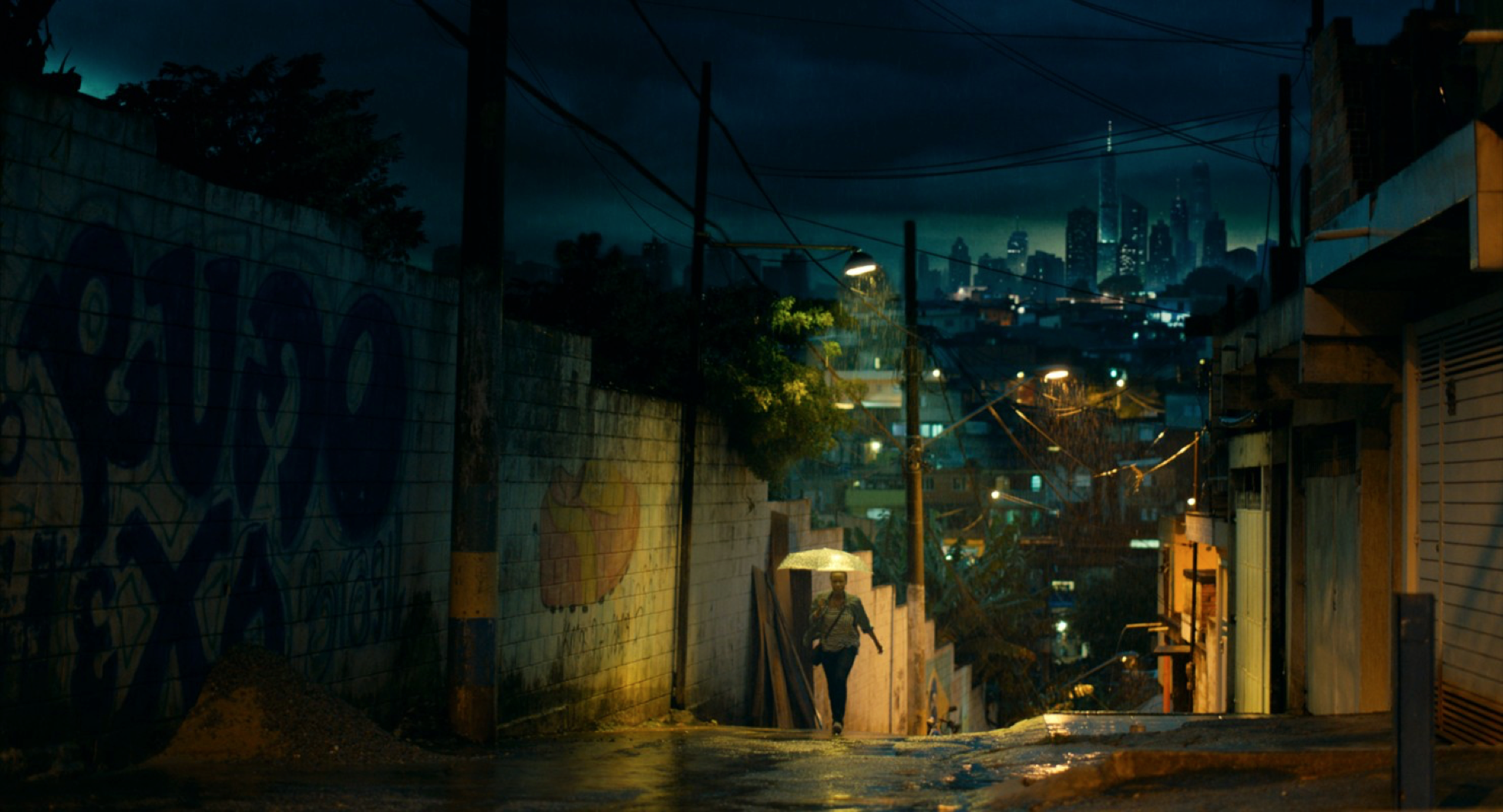
GOOD MANNERS
Director: Juliana Rojas and Marco Dutra
Genre: Horror
It’s a damn shame GOOD MANNERS isn’t as good as its first hour leads on. Horror epics are hard to come by in this day and age, especially because the genre mostly relegates itself to low-budget cash grabbing. So imagine my delight when I heard that AFI had programmed a 145-minute horror film? What started as curiosity quickly escalated into sheer ecstasy, most notably when GOOD MANNERS revealed itself as somewhat of a lesbian ROSEMARY’S BABY set in a not-so-distant future. From the meticulous art direction to the exquisite effects work, GOOD MANNERS is exquisitely captivating. It draws you into its fantasy world with delightful charm, playing out like a teenager’s imagination gone wild. It’s an untethered cultural patchwork for horror cinephiles far and wide, and the eerie mystery surrounding character behavior works wonders for that aforementioned hour. The problem is that GOOD MANNERS feels like two films joined at the hip, with the second film reading as patently less creative than anything in the first hour. What you don’t see is often more terrifying than what you do, and that’s exactly why GOOD MANNERS is so great when it’s a mystery. Once the cat’s out of the bag, directors Juliana Rojas and Marco Dutra struggle to hold my attention. That isn’t to say that GOOD MANNERS ever gets bad, it just transitions from fantastic pregnancy-horror to derivative mother-son slasher.
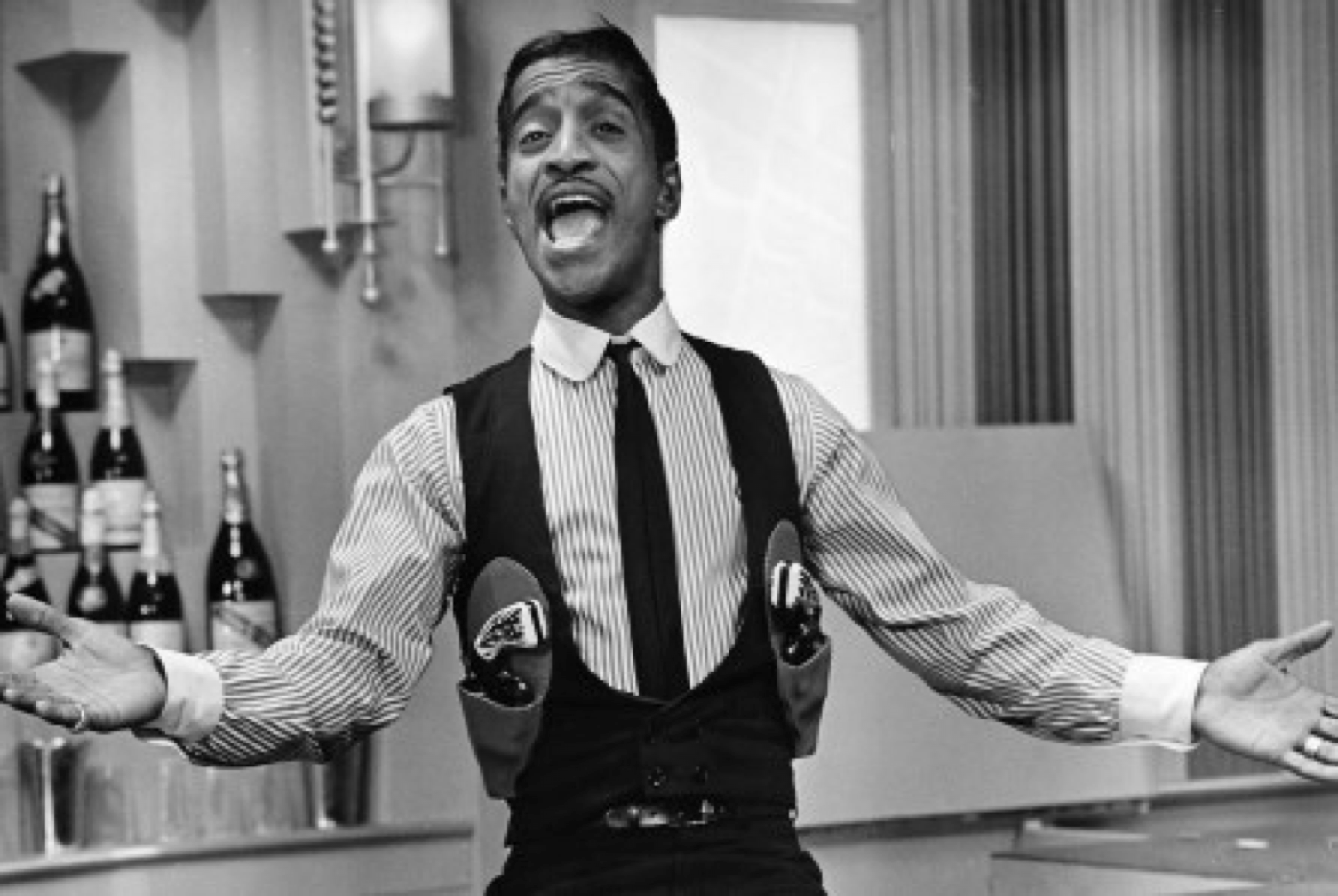
SAMMY DAVIS JR.: I’VE GOTTA BE ME
Director: Samuel D. Pollard
Genre: Documentary
Yep, that’s a documentary about Sammy Davis Jr.! To its credit, SAMMY DAVIS JR.: I’VE GOTTA BE ME does a commendable job of shining a light on a performer anyone under the age of 40 has, at most, heard a whisper of. My father happens to occasionally play in a Rat Pack cover band, so I’d at least been aware of “Candyman” and Davis Jr.’s association with Frank Sinatra and Dean Martin—I was not aware of his trailblazing accomplishments in terms of black entertainers, all of which the documentary showcases in a loving and tender light. From being the first black American to sleep in the White House to the first black man to kiss a white co-star on Broadway, SAMMY DAVIS JR. is a Rolodex of accomplishments and controversies that will certainly make you consider the entertainer with newfound respect. That being said, there’s almost a desperate need to practically overwhelm the viewer with innumerable facts about Davis Jr.’s success, without much of a notable attempt to craft a narrative or particular angle other than his continued struggle to be accepted by a community that rejected him due to his unfortunate association with Richard Nixon, introduced at the very top. In addition, the film rather jauntily skips past a briefly mentioned years-long addiction to hard drugs, never mind the virtually lifelong one to alcohol. But nevertheless, in terms of exposing audiences to the cold, hard facts of a former icon modern pop culture forgot, it goes above and beyond, and the final scene wherein a Davis Jr. on death’s doorstep does one final tap routine is sure to leave few eyes dry.
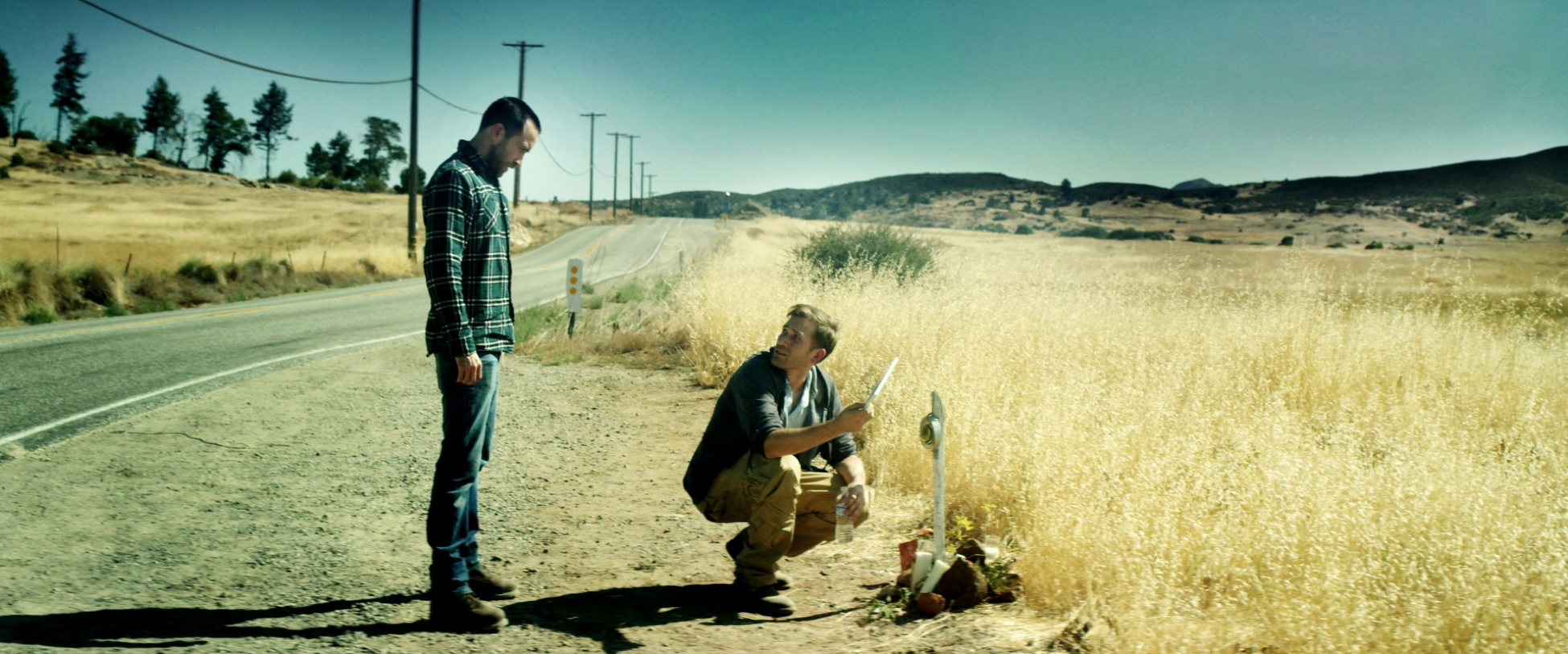
THE ENDLESS
Director: Aaron Moorhead and Justin Benson
Genre: Sci-Fi, Horror
Maybe you remember a little 2014 indie horror film by the name of SPRING? Okay, to be fair, you probably don’t, but I sure as hell do. It was a commanding, gorgeously realized indie horror film set in Tuscany. It’s probably the setting that really stuck with me—I didn’t love SPRING, but I loved its dedication to being special. Few micro-budget films, if any, have the bravery to leave the comfort of their home, let alone their hometown. Directors Moorhead and Benson, a name combination that sounds apt for a law firm, are two really cool dudes. They clearly love what they do, have a huge interest in zany, comically-infused horror, and really know how to finesse a micro-budget film into looking like a million-dollar feature. Which is why I’m so happy THE ENDLESS was programmed for 2017’s AFI Fest. Frankly, it’s a film that doesn’t really meet the criteria of the festival; most American releases are the likes of MUDBOUND or THE DISASTER ARTIST, and the rest have a tendency to fall in line with the ilk of Haneke and company. So to see something that is by all accounts a soon-to-be mainstream cult film (the type you watch during a sleepover when you’re 14 years old, no less) was kind of a welcome change of pace. THE ENDLESS is captivating, fun, and quite pretty to boot. Moorhead and Benson channel Lovecraft, death cults, and looping narratives with serious tact, bringing something to the table on each front that I had never seen before.

NEWTON
Director: Amit Masurkar
Genre: Comedy
I can’t begin to articulate how desperate I was for some light fun after just a few days at AFI Fest. As wonderful as it is to consume a quasi arthouse greatest hits playlist before the year’s end, it can be harrowingly bleak. In fact, if AFI Fest can teach you one thing, it’s that film festivals love really hopeless content. With that said, it was an absolute delight to find NEWTON in my crosshair, especially because I went into the screening with no knowledge about the film apart from an image of a man wearing a bulletproof vest and a helmet. Bracing for the impact of some cynical war epic, I was instead greeted with one of 2017’s most insightful satires, a film that sheds light on the ironies of the Indian political system, all wrapped around a wonderfully quirky protagonist whose moral and political obligations are really cramping everyone’s style. It’s clever, fun, and lean, a rare find amidst the countless two-hour opuses that littered this year’s lineup. Director Amit Masurkar brings a lot of heart and warmth to his filmmaking, making things personal to boot. I was quite excited to find Indian moviegoers in stitches, ultimately validating my theory that some of the humor flew over my head without ever inhibiting the core narrative.
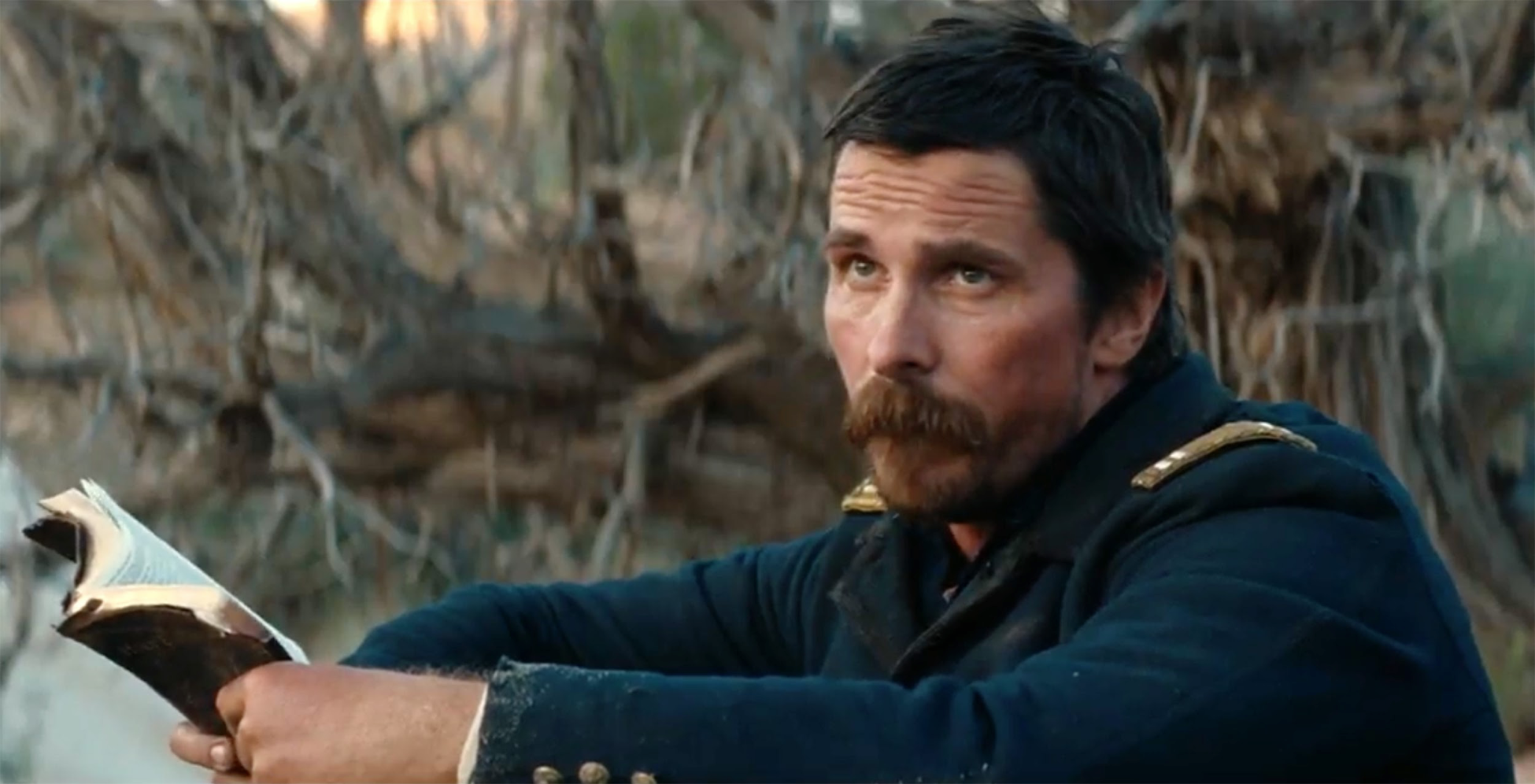
HOSTILES
Director: Scott Cooper
Genre: Western
Director Scott Cooper has been a Hollywood fringe favorite since the release of his first film, CRAZY HEART, cashed in on a career Oscar for Jeff Bridges. Four films later, he’s proven himself to be an actor’s favorite, and a lover of brooding masculine movies that flirt with awards prospects. HOSTILES, true to form, is a Western set in the late 19th century, tracking a US government mercenary in New Mexico as he’s given the task of escorting his nemesis, Chief Yellow Hawk, to his homeland in Montana to allow him to die peacefully. As a party comprised of soldiers and Native Americans make their way North, our protagonist becomes less of a villain and more sympathetic to his rival. Cooper is conscious toward the genocidal treatment of Indians, and never shies away from violence in every direction. It’s a Western built on many traditional principles, but the effect of endless brutality eventually starts to work, eroding the viewer to exhaustion. The biggest critique: for a film that touts itself as progressive, the white characters are given much more dimension than their Native American counterparts. I don’t mind having Christian Bale be the protagonist, but the movie could have benefitted from a better balance of the supporting cast.
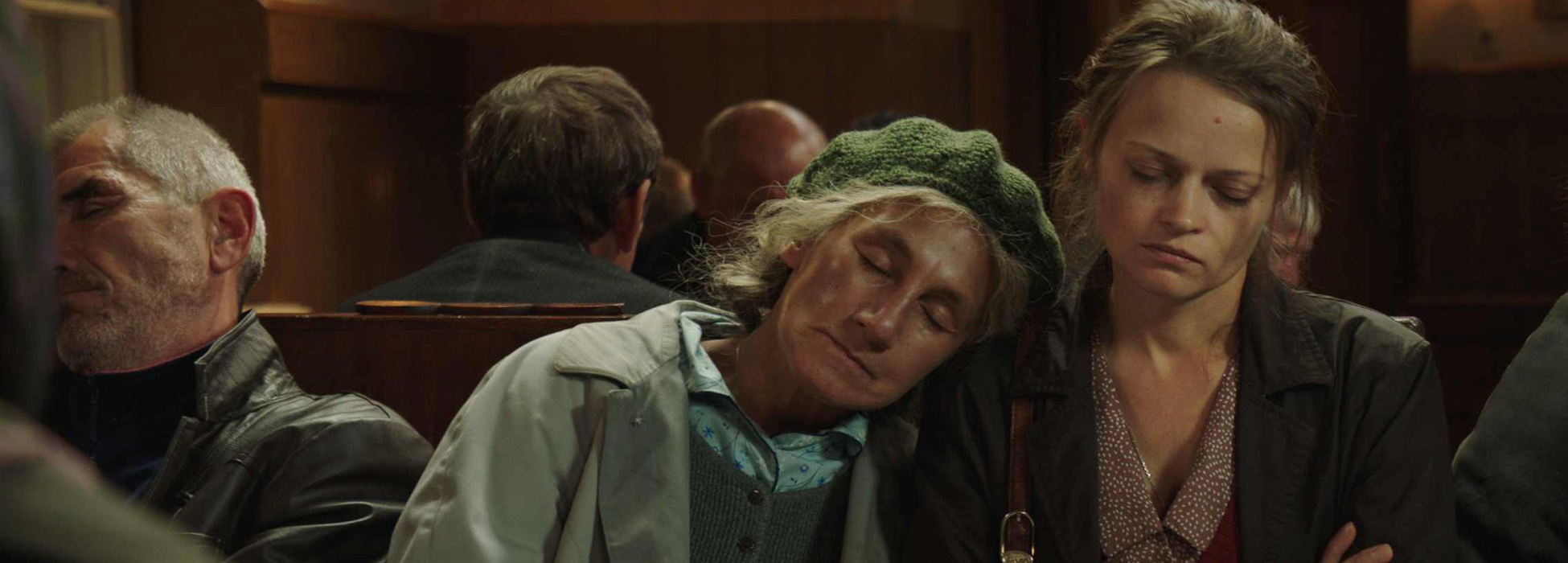
A GENTLE CREATURE
Director: Sergey Loznitsa
Genre: Drama
Some songs don’t get old. In the case of Sergey Loznitsa’s A GENTLE CREATURE, we have a film of overwhelming cynicism, a bleak foray into the bureaucracy of the Russian penal system. Naturally, that means viewers are destined to witness much of the same socio-political commentary they’ve seen in the film’s peers, from LEVIATHAN to THE DEATH OF MR. LAZARESCU. It’s languorous, plodding, and is anchored by a central performance that is swept up by the harsh Russian winds, a tumbleweed in a prison town. That is to say, A GENTLE CREATURE is really far from innovative—but that doesn’t keep its first hour from being a nail-biting ride. Each scene is elegantly blocked and shot with extreme care. Loznitsa might be treading familiar ground, but his ability to frame everything within a refreshing context is wonderfully stimulating. In particular, a one-take party sequence really takes the cake for immersion, harrowing in its contradictory juxtaposition of low-living, excitable, and belligerent alcoholism. Loznitsa’s characters, much like countless great Russian leads, drink to forget, but the realism with which he captures this psychological meltdown is inspiring. As such, it’s a shame that A GENTLE CREATURE steps on its own toes by insisting on a 142-minute running time.
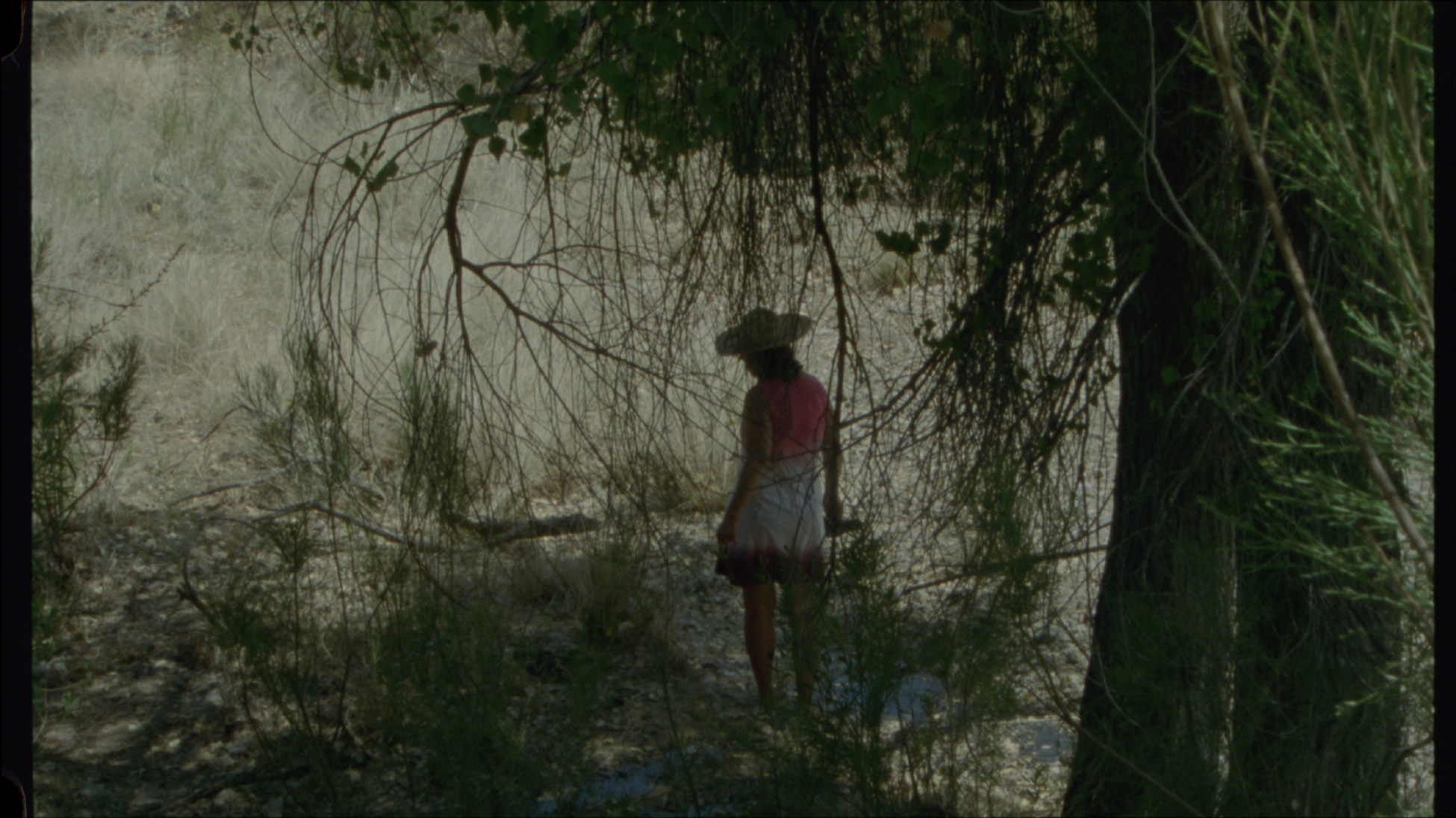
EL MAR LA MAR
Director: J.P. Sniadecki and Joshua Bonnetta
Genre: Experimental Documentary
One of the new releases from the Harvard Sensory Ethnography Lab (SEL), EL MAR LA MAR doesn’t quite live up to the standard one might expect from the group. Across its three chapters set on the Mexico-U.S. border, filmmakers J.P. Sniadecki and Joshua Bonnetta attempt to present that which is, in effect, the unknowable. Interspersed between poetic treatments of landscapes are long black pauses, filled with anecdotes trying to make sense of a world that appears alien, faced with death, decay, the abject materialized before them. While compelling on its own terms, it is hard to see the novelty of EL MAR LA MAR when such a presentation has existed in experimental documentary for several decades. Where other efforts of the SEL have pioneered new terrains of representation, EL MAR LA MAR doesn’t bring much new to the table.
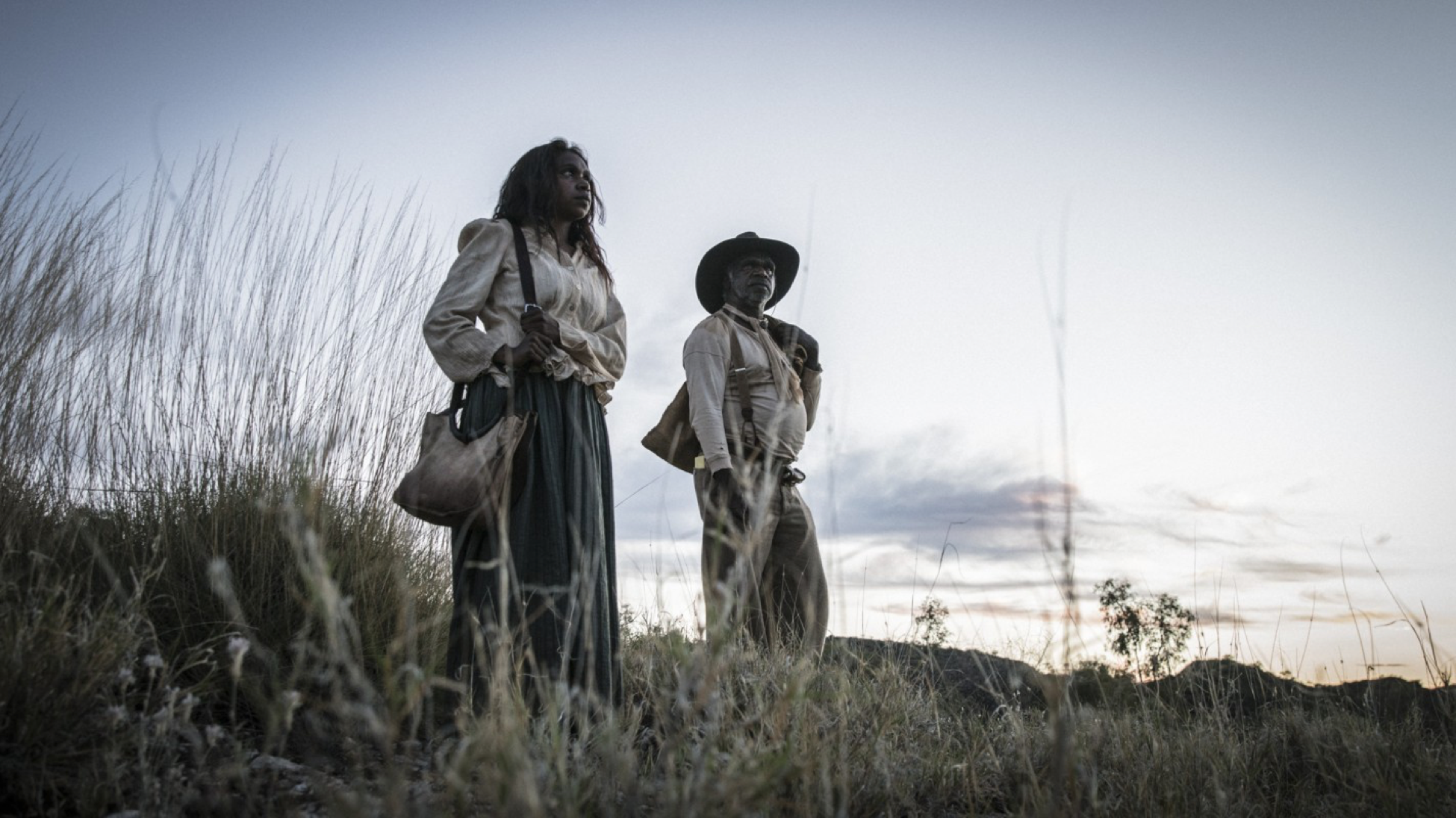
SWEET COUNTRY
Director: Warwick Thornton
Genre: Western
There were an abundance of Westerns at this year’s AFI film festival, but few stood out quite as evocatively as Warwick Thornton’s outback melodrama, SWEET COUNTRY, a meditation on race, God, and human cruelty. What starts off as an inarguably pedantic, run-of-the-mill Australian period piece slowly but surely snowballs into something far more nuanced. Misanthropic, bleak, unflinching, but always riveting, SWEET COUNTRY uses tropes commonly associated with the machismo of the Western genre, including the lazy, unfavorable one of rape, but manages to flip its narrative on its head near its third act. In a clever reversal of our expectations, SWEET COUNTRY is less a film about justice, and more specifically one of fate. It’s something Thornton points towards with countless obtuse glimpses into the future, and really cements by the time the film reaches its show-stopping finale. It’s a tale of men, their duty to their land, their loved ones, and what happens when injustice drunkenly stumbles to your doorstep. Sam Neill delivers one hell of a commanding performance, and the unique, multi-ethnic backdrop of the Australian outback casts a wonderfully complex tapestry of deceit and unrest. Certainly among AFI Fest’s most mainstream selections, but one that is sure to leave few viewers unfazed.
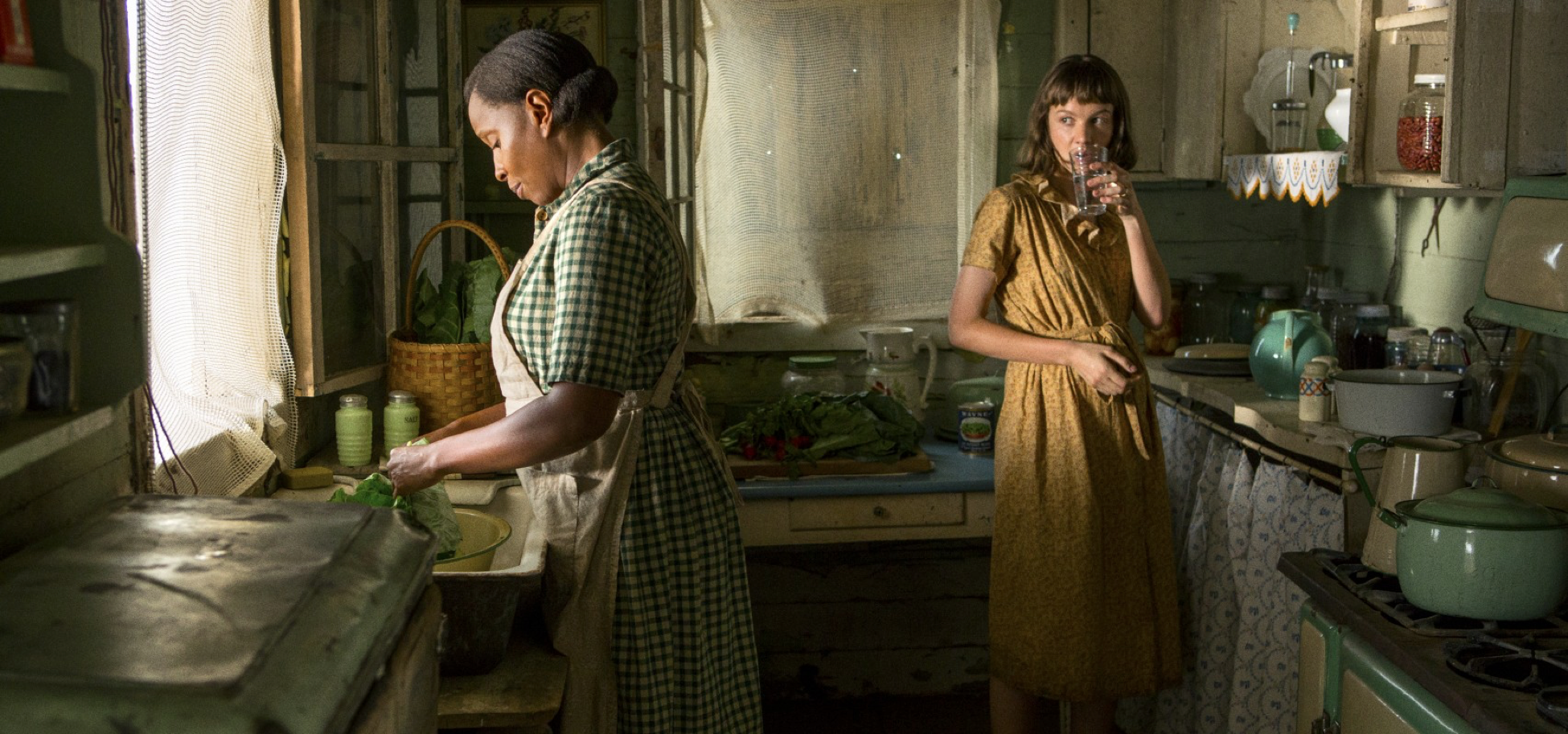
MUDBOUND
Director: Dee Rees
Genre: Drama
One of the most obvious yet still important lessons of American History was that things weren’t all fine and dandy the second slavery was abolished. Held up by rock solid performances from an exceptional ensemble cast, MUDBOUND tells the parallel stories of two families, one black and one white, during the tail end of World War II in the Mississippi Delta, where the wounds of white predation from slavery and “Reconstruction”-era sharecropping have yet to heal. Sadly, the first two acts are disappointing. The inclusion of voice-over from nearly the entire main cast and incoherent editing both inhibit the film from finding its narrative throughline. Early on, the film can’t seem to decide whether it wants to be the next ROLL OF THUNDER, HEAR MY CRY, or MIRACLE AT ST. ANNA. Thankfully, the cast here is strong enough to hold interest until things eventually funnel down into a worthwhile and profound conclusion with less heavy hands than one would think. Standouts are, of course, the impeccable Mary J. Blige as former wet nurse, now current Jackson family matriarch, Florence, and BREAKING BAD’s Jonathan Banks as old hate-spewer Pappy McAllan. MUDBOUND nearly takes full advantage of its period, but the next 12 YEARS A SLAVE this is not.
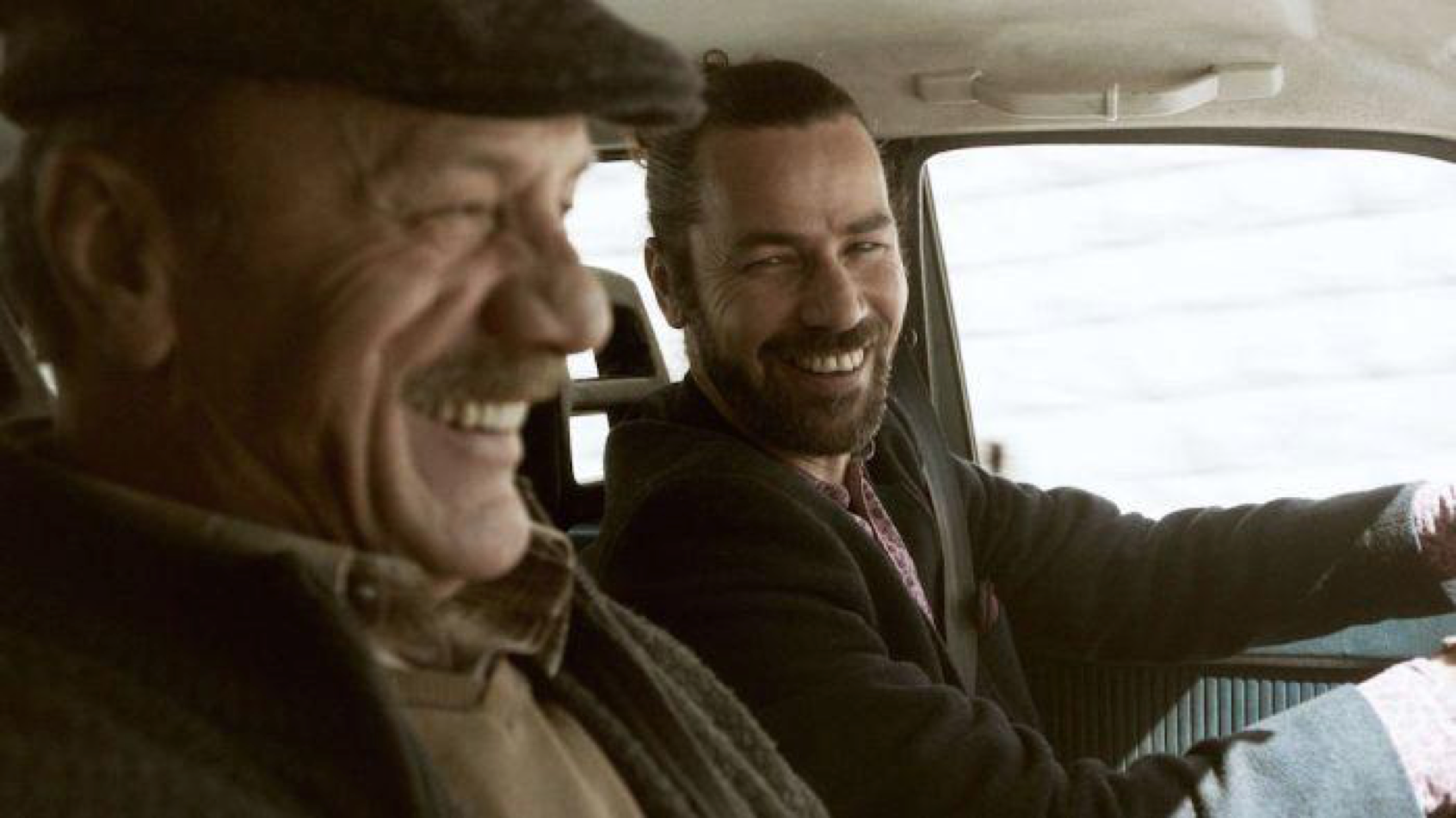
WAJIB
Director: Annemarie Jacir
Genre: Drama
What an unexpected treat! But a brief disclaimer before we begin: considering the reputation of some of the other directors catered to at AFI, audiences would do well to not approach WAJIB expecting something experimental or atmospheric. This is just a solid script with warm, lovable characters and a subtle, but no less impactful, take on one of global society’s largest issues. Amal (Maria Zreik) is getting married, and father-son duo Abu Shadi and Shadi (played by real-life father son duo Mohammad and Saleh Bakri) must come together after years apart to hand-deliver her wedding invitations per Palestinian custom. It’s a stellar concept for any sort of independent dramedy, and one that becomes all the more powerful as Abu Shadi and Shadi slowly reveal all of their inner turmoil and conflicting feelings regarding their contested homeland and personal history. What’s most impressive about WAJIB is that while the Israeli-Palestinian conflict is always hovering in the background, affecting events and attitudes in subtle ways, the film rarely forces us to drink, instead letting us lead ourselves to water as we see fit. For a region so oppressively reported on by biased Western news source, WAJIB’s genuine and firm desire to simply show the minor joys, trials, and tribulations of daily life in Nazareth is commendable; as Abu Shadi has to continually remind Shadi, it’s not a crime to enjoy living there, conflicts with the Israelis and all. Consistently laugh-out-loud funny, there are a handful of beats that feel forcibly inserted to invoke drama, but for the most part, WAJIB is an unassumingly poignant tale of family, culture, and custom.

CLOSENESS
Director: Kantemir Balagov
Genre: Experimental
In selecting controversial French filmmaker Philippe Grandrieux’s DESPITE THE NIGHT for competition last year, AFI Fest made a step in a direction I could not have anticipated, bringing more of an avant-garde flavor to a festival dripping with otherwise characteristic “art film.” CLOSENESS, the debut feature by Russian filmmaker Kantemir Balagov, fills that very same niche, though unfortunately to a lesser effect. An interpretation of a locally-famous 1998 kidnapping in Nalchik, Russia, CLOSENESS is at its best when it is the most disrespectful to figure. Tight close-ups on characters’ skin and mutations with light and sound (this is one of the only films in my memory to use a thrown-out voice as a means of providing acoustic abstraction of the body) all lend to a more riveting and aesthetically provocative version of what would otherwise be done with the scenario. The issue here is Balagov’s commitment to abstraction, or rather, lack thereof; unevenly applied, these sublime moments are always held back by a needless reliance on plot and convention, unwilling to fully alienate the audience. I am anticipating Balagov’s future projects, as this film alone certainly points toward a filmmaker whose career may be very colorful. On its own terms, however, CLOSENESS isn’t flirting with greatness as it ought to.
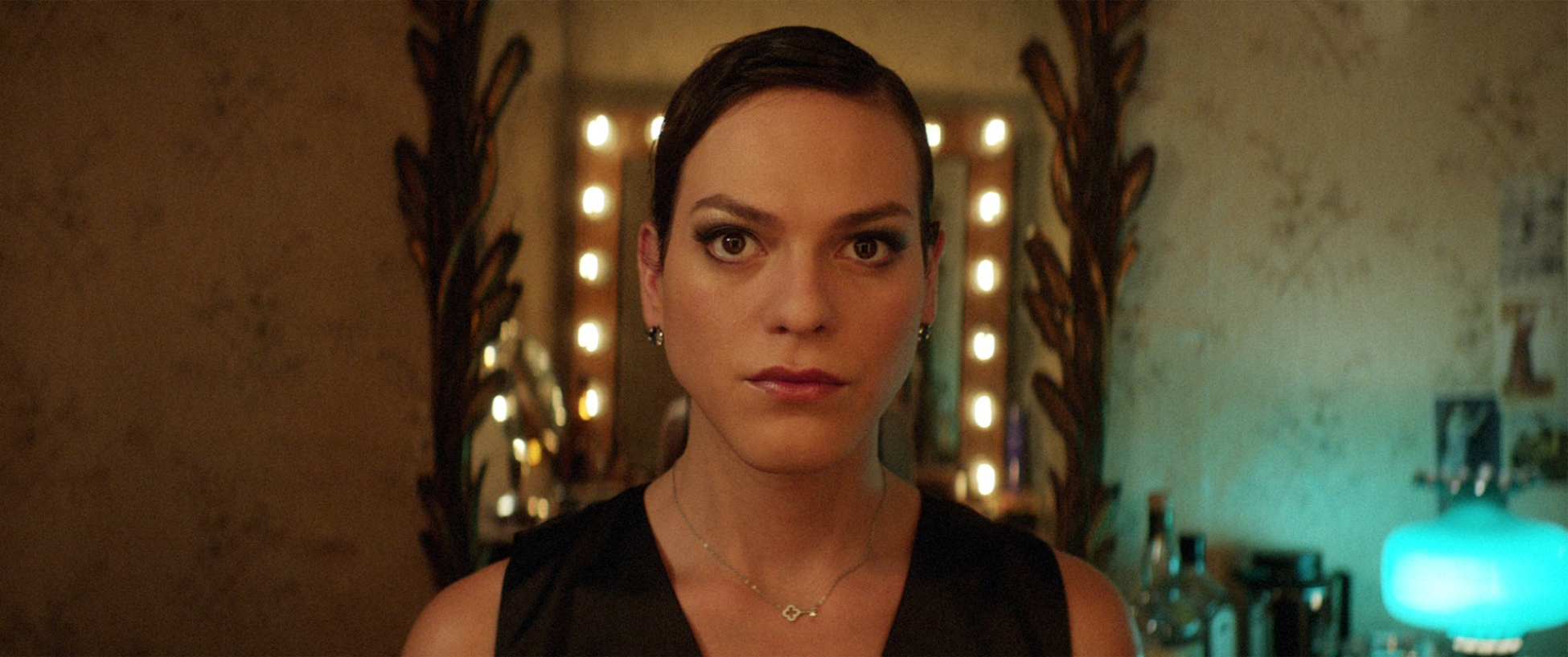
A FANTASTIC WOMAN
Director: Sebastián Lelio
Genre: Drama
As the JUSTICE LEAGUE premiere was raging havoc on Hollywood and Highland’s Dolby Theatre, AFI Fest met A FANTASTIC WOMAN with a standing ovation. Few, if any, foreign films garnered the crowd that this trans-positive drama did at this year’s festival, a vital showcase in the changing tides of LGBT cinema. Following a trans woman’s grief after losing her boyfriend to an aneurysm, the most refreshing thing about director Sebastián Lelio’s melodrama is its willful refusal to abide by the standards set by trans stories. A FANTASTIC WOMAN is not a transition film, nor is it a coming-out film. It’s a tale of a woman who is loud and proud about who she is, whether the people around her accept this or not. Lelio’s conflict revolves around the family of the deceased boyfriend, namely the concept of being unwanted during funeral preparations, not to mention the memorial itself. It’s chilling in its emotional brutality, and performed with class, wit, and astute skill from newcomer Daniela Vega, an actress who is sure to find great success in her home country. Few performances are quite this memorable, and the grace of Lelio’s direction really shines with a keen observational eye and an ability to avoid genre-defining trademarks. As Lelio stated in his Q&A, A FANTASTIC WOMAN is a trans film in more ways than one. It transitions in genre, tone, and style, part Farhadi melodrama and part Almodovar comedy. I can see the American remake on the horizon already, and frankly, that’s a great thing. If Hollywood can help further narratives of this sort, then I’m all for it. Hell, John Turturro was sitting a row ahead of me, maybe he’ll play the deceased boyfriend?

A SKIN SO SOFT
Director: Denis Côté
Genre: Documentary
Likely among the most misunderstood films of the year, Denis Côté’s latest documentary, A SKIN SO SOFT, is a definite festival standout. Despite being dismissed at Locarno earlier in the year, A SKIN SO SOFT presents one of the most interesting thought experiments of cinema in 2017. Its conclusion draws attention to the obvious reference to Edison’s SANDOW films, but Côté’s work is closer to Muybridge than anything else—it is the antithesis of humanist cinema, where the pleasure of the image taps into an even more basic appreciation: the exchange of shapes across the flat screen. Taking as its subject matter the private lives of some five bodybuilders, Côté takes advantage of an unusual paradox: rather than getting to know these people, whose lives have been reduced to pure visual commodity, they become increasingly abstract the longer we spend with them. Learning to see figurative cinema in a pre-figural manner—this is the film’s subversive attitude, asking us to find the pleasure in the crescent of a smile, the folds and creases of skin, the sharp angles of a beard. Pure visual ecstasy.
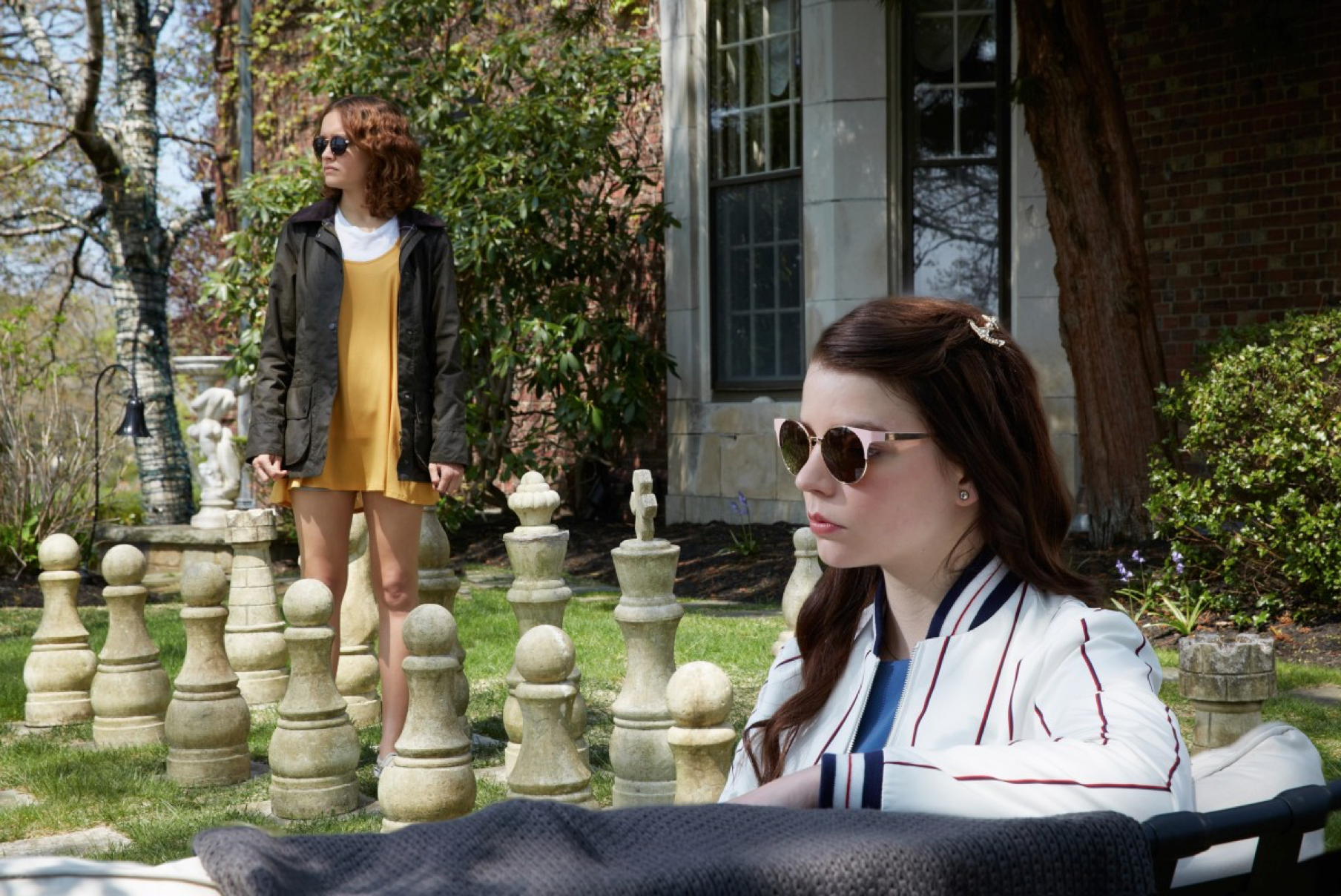
THOROUGHBREDS
Director: Cory Finley
Genre: Comedy
In what was perhaps the funniest screening of this year’s AFI Fest, THOROUGHBREDS really took me off guard. Cruel, sardonic, dry, and precise, director Cory Finley’s directorial debut is quite the shocker, the result of skillful writing and a deep appreciation for solid camerawork, staging, composition, production design, and all other gears in the director’s toolbox. THOROUGHBREDS is an unusually arresting film, one that thrives off of the magnetic energy of its two outstanding lead actresses, Olivia Cooke and Anya Taylor-Joy. Each breathes a unique sensibility into the film, just a degree off from the other’s depiction of sociopathy. And it all works because Finley’s story is so wonderfully simple. It’s a tale of privilege, envy, boredom, and mental unrest swelling into a misanthropic murder tale—part HEAVENLY CREATURES, part Lanthimos vehicle. Frankly, it’s a better Lanthimos film than THE KILLING OF A SACRED DEER, surprising me with a wit and charm that the latter couldn’t muster up. But what’s more, THOROUGHBREDS really surprises me, constantly finding new ways to play with my allegiances. It does such a fantastic job at making me hate its antagonist in its opening scene that I only began to question my loyalty to these girls halfway into the film—thanks in part to a wonderful, final star turn from the late Anton Yelchin. It’s a powerful film, one that gets significantly more mileage once you make peace with the fact that every character in it is a sociopath, proving that Cory Finley is a surrealist worth looking out for.
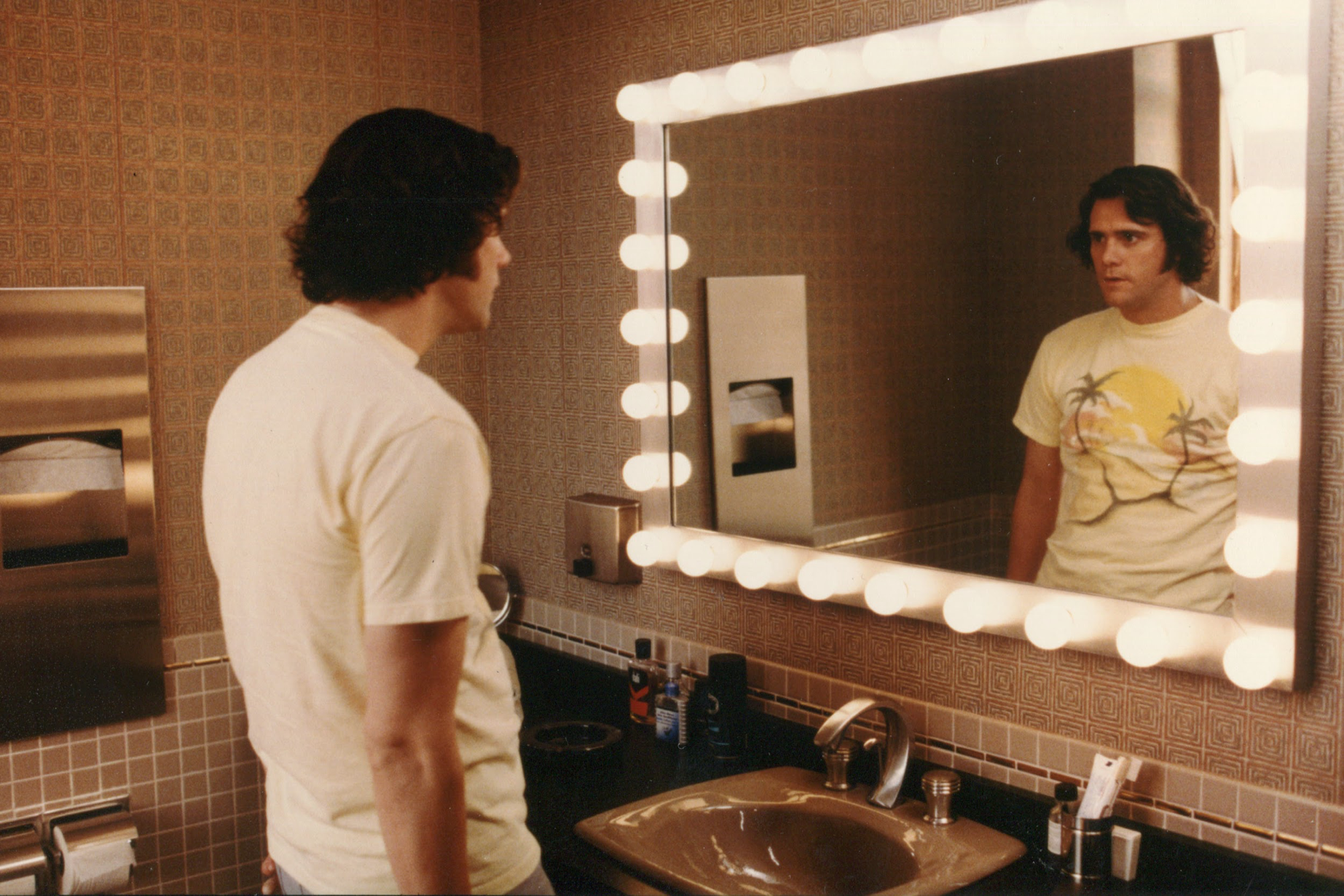
JIM & ANDY: THE GREAT BEYOND WITH A VERY SPECIAL CONTRACTUALLY OBLIGATED MENTION OF TONY CLIFTON
Director: Chris Smith
Genre: Documentary
First it should be known that if you have not seen the 1999 film MAN ON THE MOON, you should do so immediately. And indeed, if you haven’t seen it, this film is irrelevant, as it is about the making of that picture. For those who have, Netflix’s documentary plays as a brilliant follow-up piece. Gone-too-soon entertainer Andy Kaufman was so groundbreaking in his comedic work that he invented a whole new term: performance art. His work was so original and insane that it is as hilarious today as it was then. A generation later, Jim Carrey, in the peak of his career, took on the role of Andy Kaufman for a biopic. This documentary bounces between the archival footage of its making and a present day interview of Carrey, who describes literally becoming Kaufman, and never breaking character for the entire shoot. His performance was so maddening yet hilarious that he describes breaking down Oscar-winning director Milos Forman to a grovel for sanity. Seeing how MAN ON THE MOON was made, we realize why it was so good: because Jim Carrey was born to be the next Andy Kaufman. Carrey’s present day interview allows him, in a much different place in life, to reflect on identity and the meaning of life, adding texture to the hilarious and unbelievable footage we see. There could not be a better way to let the spirit of Kaufman (and Tony Clifton, his alter ego) live on. While the premise sounds like a DVD bonus feature, the resulting documentary is one of the most richly entertaining non-fiction films of the year.

ON BODY AND SOUL
Director: Ildikó Enyedi
Genre: Romance
What will probably go down as the cutest film you’ll ever see about butchering cattle, ON BODY AND SOUL is sardonic, silly, but also wondrously imaginative. Following a crippled office worker and his infatuation with a slaughterhouse meat grader, director Ildikó Enyedi proves that her Berline darling is quite the showcase of talent, a film that understands exactly how to win our sympathies, even if its characters behave like absolute aliens. Connecting dreamscape with the harsh realities of documentary-esque slaughterhouse footage might not exactly be the world’s most inspired idea, but Enyedi’s ability to find beauty in this tragic climate is quite refreshing. It’s a love story of two hamstrung misfits finding their soulmate in the bleakest of places. Frankly, we don’t get enough films of such warmth and compassion, certainly not in the arthouse scene—a space which is often dominated by humanist cynicism. As such, much of ON BODY AND SOUL’s mishaps (notably a second act slump) are redeemed through its sheer willpower to be an optimistic force in a pessimistic world. It’s use of Laura Marling’s “What He Wrote” is undeniably arresting, and the quiet platitudes that Enyedi evangelizes are oddly rewarding in the grand scheme of things. ON BODY AND SOUL might not be quite the foreign film masterpiece that the Berline made it out to be, but I’d be remiss not to recommend it to everyone once it drops on Netflix in February.
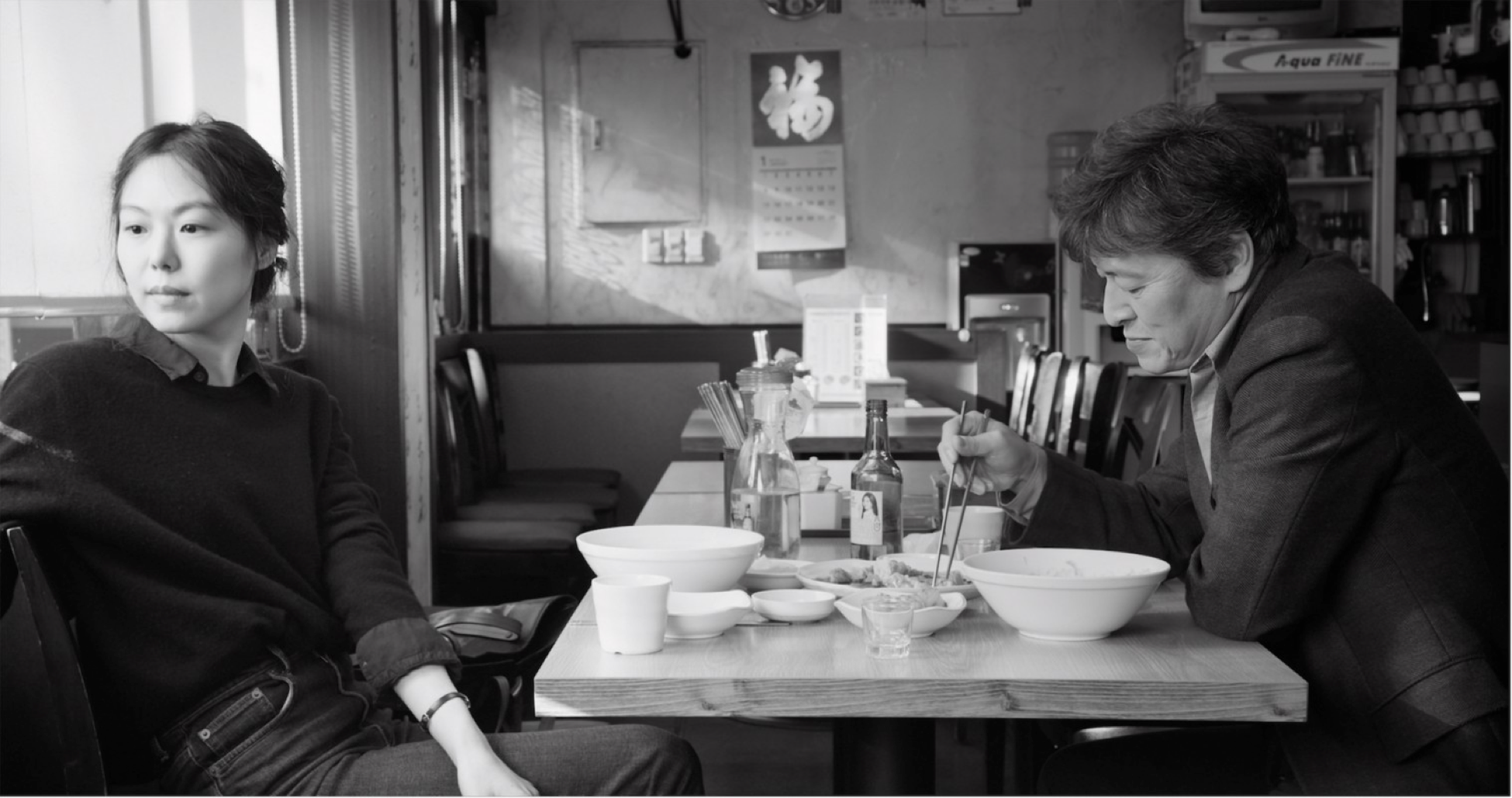
THE DAY AFTER
Director: Hong Sang-soo
Genre: Drama
It is no accident that two of the three new features by Korean master Hong Sang-soo have played every festival together as a unit: they’re symbiotic efforts, feeding off of the energies of the other. Neither have the oblique mystery of Hong’s more famous efforts (nor that of the third film released this year, the magnificent ON THE BEACH AT NIGHT ALONE), but this is no strike against them. Where CLAIRE’S CAMERA feels the closest to a cinematic manifesto of Hong’s style, THE DAY AFTER has more meat on its bones, a rumination on what motivates the enigmatic aspects of his prior efforts. Like many of his best works, there exists in THE DAY AFTER answers that constantly elude us, that prevent any true knowledge of the everyday Other. If THE DAY AFTER is a success, it’s because it is a film that illustrates this constant lack of fulfillment, that sense of needing others to feel complete, and the phantasmal answers projected onto others to fill that boundless lack. Hong is at his best when his films are the most incomplete, and while THE DAY AFTER may be one of the more “filled” efforts of late, how it illustrates this filling is impressive enough on its own.
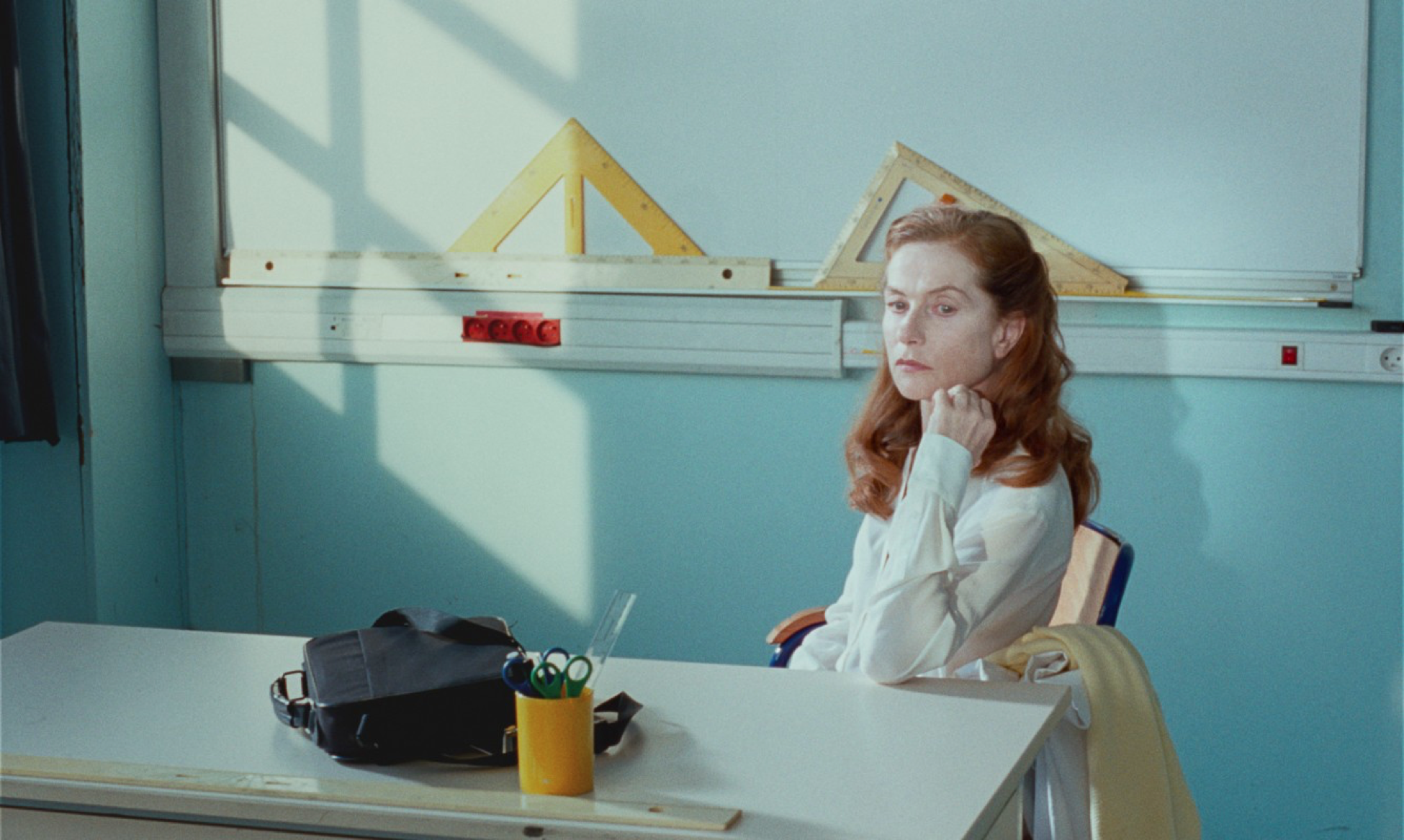
MADAME HYDE
Director: Serge Bozon
Genre: Drama
Against the modern output of French art film, Serge Bozon belongs to an older generation, recalling the poppy attitude of the nouvelle vague. MADAME HYDE, his latest effort starring the irresistible Isabelle Huppert, is much like THE NUTTY PROFESSOR, if it were as Marxist as the French made Jerry Lewis out to be. An electrical accident transforms Huppert from the ineffective instructor Géquil (pronounced “Jekyll”) to the confident—and occasionally radioactive—Madame Hyde, taking it upon herself to improve the education of her students, otherwise left behind by the classist, racist French system. Yet, for all of its emphasis on practice (and praxis), Bozon never loses sight of the humor of his scenario; MADAME HYDE is rarely short of hilarious, with an exceptional cast, from the foppish principle (Romain Duris) to Géquil’s dopey husband (José Garcia). With the 50th anniversary of the Student-Worker Protests of May ‘68 just around the corner, MADAME HYDE could not be timelier.

MILLA
Director: Valerie Massadian
Genre: Drama
As it was my most anticipated film of the festival, I am ecstatic to say that Valerie Massadian’s MILLA, winner of the Special Jury Prize at this year’s Locarno Film Festival, is every bit as good as it was reported to be. Massadian’s sophomore feature demonstrates a sensitivity and thoughtfulness all too absent, both at this festival and in modern filmmaking in general. Though it carries the observational delicacy of Pedro Costa, MILLA is far closer to early von Sternberg, particularly his SALVATION HUNTERS (1925), with which this film has much in common narratively and in terms of their shared baroque form. Everything about the film feels instinctual, from Massadian’s pictorialism to the stripped-down performances of her leading actress (Severine Jonckeere). Although she has only released two features in her seven-year career, MILLA guarantees Massadian a spot on the list of the most important new filmmakers of the decade; between this and her debut, NANA (2011), she displays the method of a veteran filmmaker. Undoubtedly among the best of the festival, likely even to be the best film of the year.
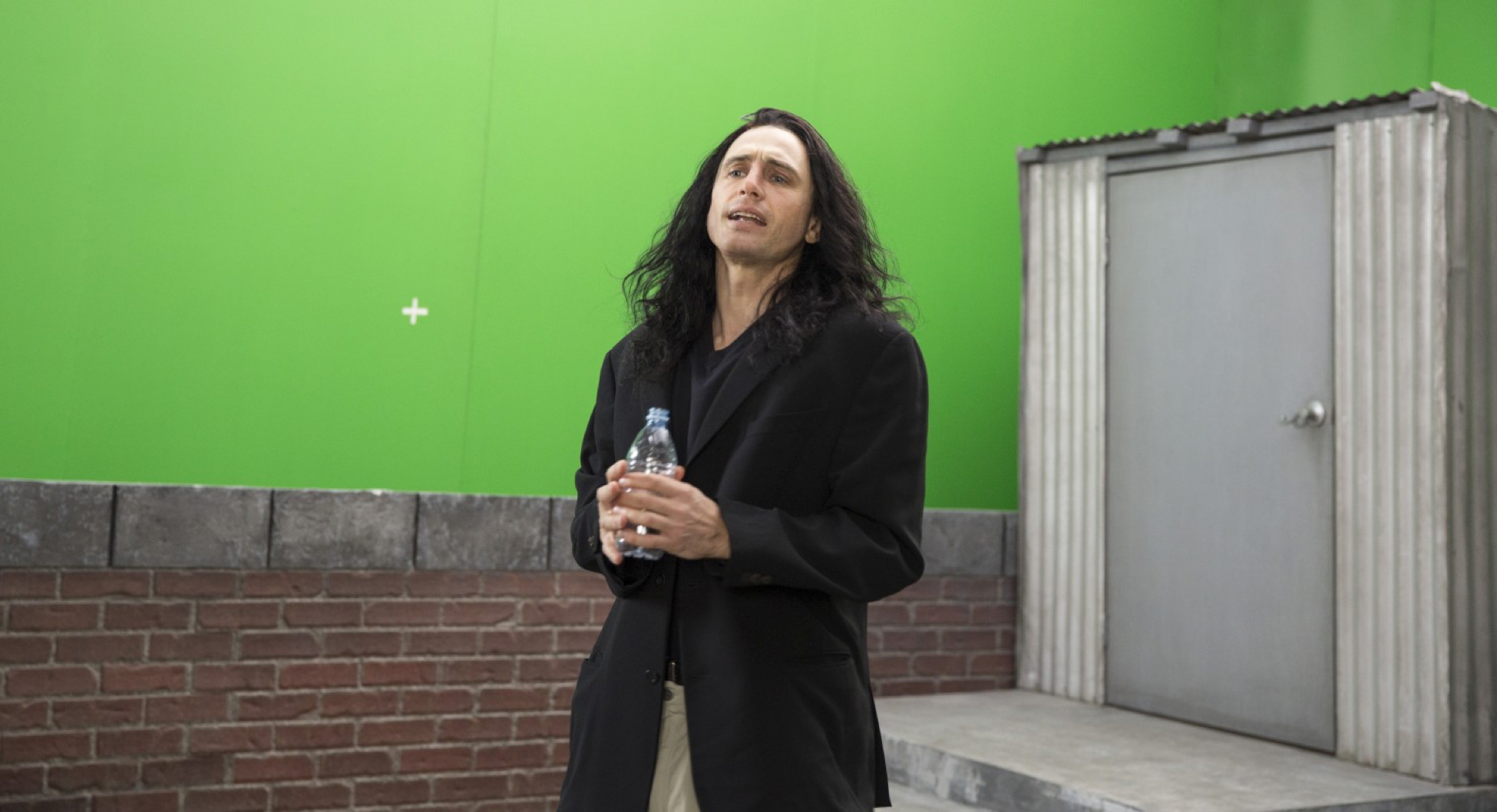
THE DISASTER ARTIST
Director: James Franco
Genre: Comedy, Biopic
Can you believe that there are some who consider themselves versed in American film culture yet have not seen THE ROOM? While not an altogether necessary piece in the bizarre Wiseau saga, THE DISASTER ARTIST’s attempt to understand the manic drive and eventual genius of a destined auteur is admittedly delightful. It obviously doesn’t go as in-depth as its source material and, though they are brought up, the questions concerning Wiseau’s origins or where the hell the money came from are left unanswered—and that is completely fine. The film has good intentions and by no means is exploiting the experience of an overambitious, goofy immigrant. From the beginning we realize, just as Greg Sestero did, that Wiseau just . . . had it! His fearlessness, dedication, reverence of influential figures in the performing arts from Tennessee Williams to Shakespeare to Stanislavsky, and unfettering determination was exactly what the film world needed both then and now. One of the strongest moments is early on, when Wiseau and Sestero have their first one-on-one at a San Fran diner. Tommy convinces Greg to simply let go and perform a scene with him in public right then, igniting the passion within Sestero he failed to find beforehand. When not revolving around its central enigmatic figure, the film turns into a sappy love letter to Hollywood and the art of cinema. “The worst day on set is better than the best day anywhere else” declares an unspecified PA. If anything, we could all use a reminder of how great THE ROOM is.
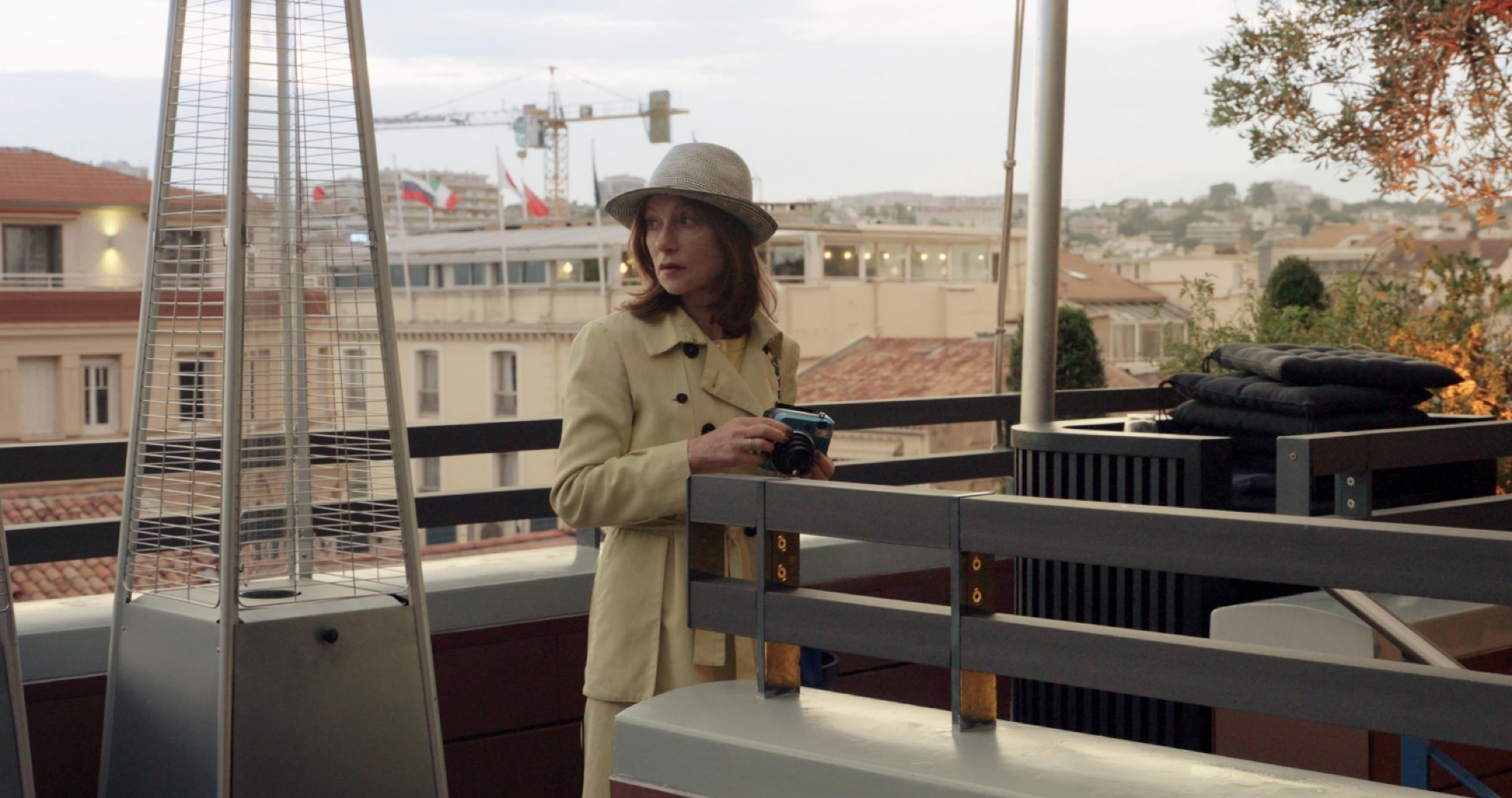
CLAIRE’S CAMERA
Director: Hong Sang-soo
Genre: Drama
Part of what makes Hong Sang-soo South Korea’s greatest auteur is definitely his work ethic. Though to the uninitiated CLAIRE’S CAMERA may seem like a one-take, 70-minute vanity project shot at Cannes Film Festival, fans placing it in the greater context of his previous work are served up a tight sampler of his best elements. After getting laid off from her job at a Korean film acquisition company in the middle of the festival, Kim Min-hee’s Jeon Man-hee finds the irresistibly sweet high school teacher Claire, played by Isabelle Huppert, snapping her photo. As was the case with IN ANOTHER COUNTRY, the charms of the English language barrier bridge make the two fast friends as they gleefully discover more about each other and eventually the higher-ups who fired her. There are plenty of callbacks, such as Kim Min-hee’s sea breez-y hair beautifully flowing, just like it did in this year’s ON THE BEACH ALONE AT NIGHT, an adorable dog search similar to that of HILL OF FREEDOM, just the right amount of Hong Sang-ZOOMs, and conversations concerning fidelity and honesty, as well as photography. “You’re not the same person you were in this photograph. You’ve changed,” Claire explains to Director So, played by Jung Jin-young, who only meets the weighty assertion with awkward laughs. Whether these be meditations on the authenticity of Hong’s unique yet heartbreakingly honest portrayal of life in his films or film as an art in itself, there’s much more to CLAIRE’S than meets the eye.
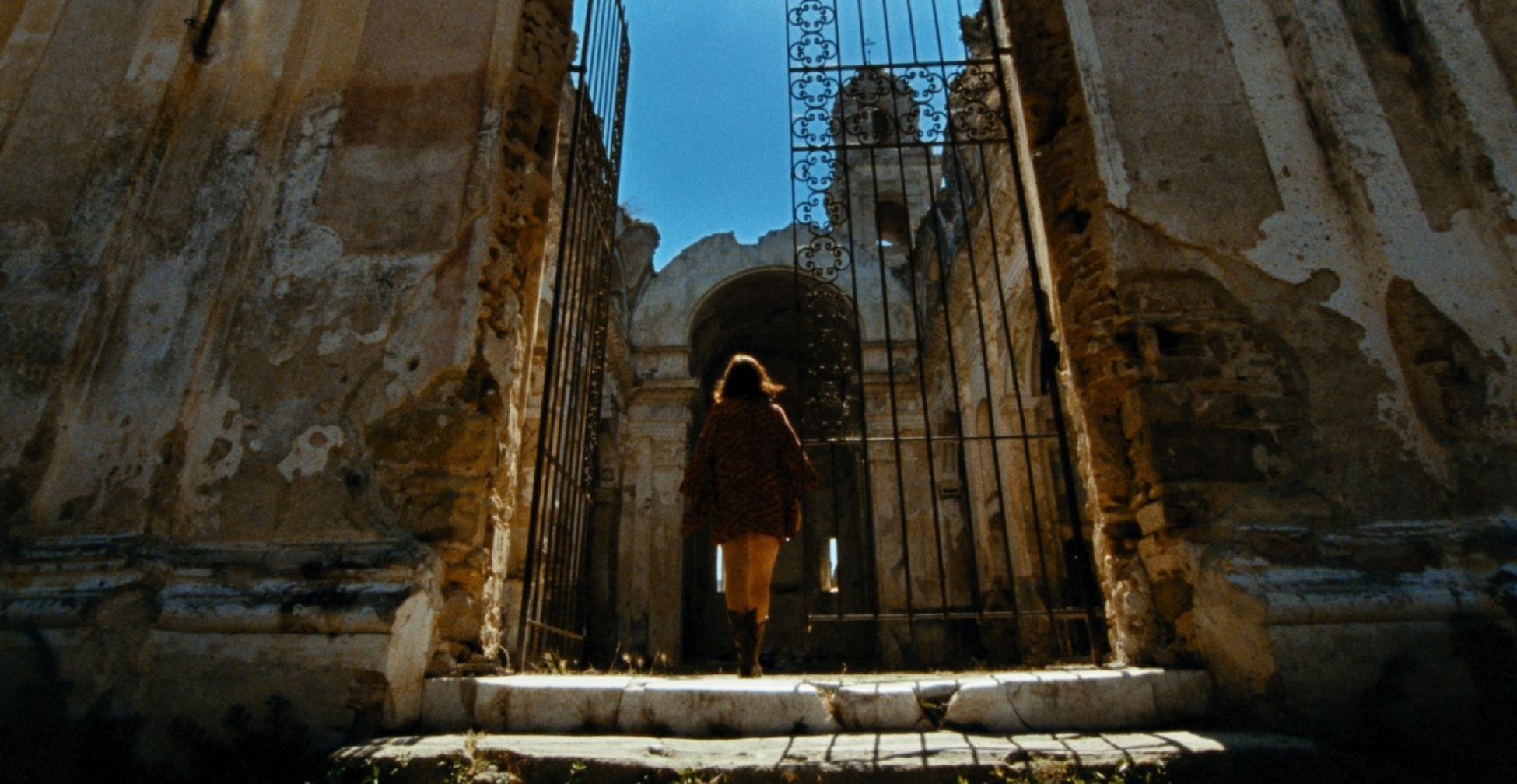
LET THE CORPSES TAN
Director: Hélène Cattet and Bruno Forzani
Genre: Action, Experimental
Every now and then you witness something so transfixing, so inexplicably trailblazing in its sheer, visceral inventiveness, that you have to take a minute to let it sink in. LET THE CORPSES TAN is one of those films. In fact, I’d wager that it still hasn’t fully settled with me yet. It’s a perfect example of a film I need a week to process. This is an experimental fever dream, a hyper-stylized, Spaghetti Western, grindhouse panic attack set by the French riviera. It carries the intensity of an Edgar Wright action scene for its entire 92-minute running time, playing with more novel concepts per minute than the average Hollywood film accomplishes in two hours. It carries the narrative economy of a Polanski film and the formal precision of a Tarantino caper. But it’s never content with being some filmmaker’s derivative. In fact, the only reason I’m even trying to compare LET THE CORPSES TAN to something inside of the cinematic pantheon is because much of it defies categorization. It’s absolutely bonkers, the type of pulp nightmare that you’d accidentally rent from a Blockbuster only to have a new favorite film the next morning. It plays with cinematic conventions like few of its contemporaries, understands the language of visual storytelling like it’s a simple card trick, and utilizes its narrative shorthand to expedite any and all trivialities. It’s absolutely mind-numbing in its intensity, far and away one of 2017’s most audacious releases.
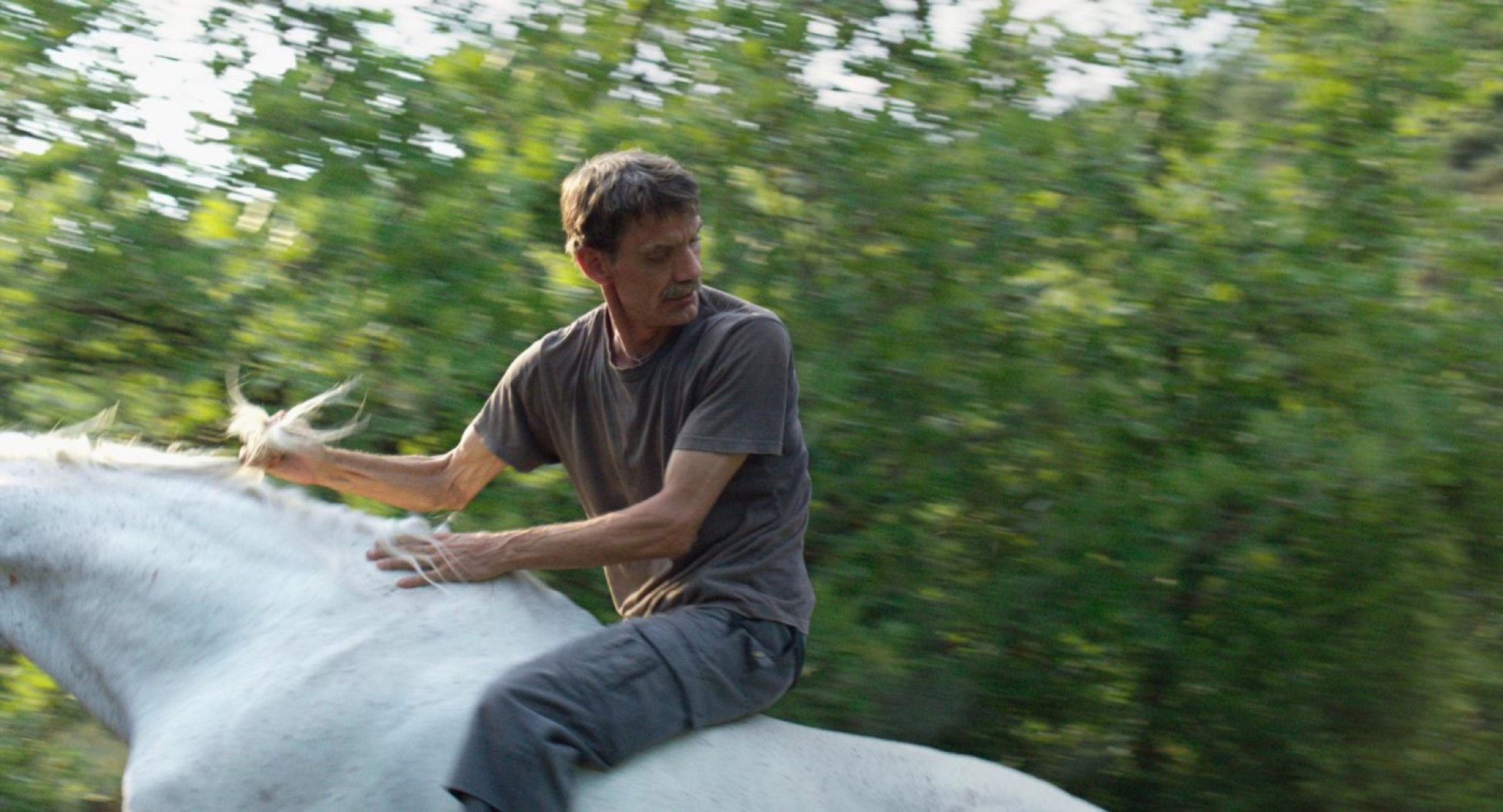
WESTERN
Director: Valeska Grisebach
Genre: Drama
It’s an inarguable fact that TONI ERDMANN was a highlight of last year’s AFI Fest, which is why WESTERN felt like such a welcome follow-up in 2017. What could read as a blue-collar counterpart to Maren Ade’s award-winning comedy might just be one of 2017’s most profound releases, a film that preaches empathy amidst cultural divides, using tropes of the Western genre to tell a far more nuanced narrative. After a group of outsourced German construction workers tasked to build infrastructure in a Bulgarian village don’t see eye-to-eye with the local townsfolk, director Valeska Grisebach’s narrative goes by way of “this town is too small for the two of us.” Anchored by a phenomenal, muted performance by Meinhard Neumann, a man who evokes the best of Clint Eastwood and Harry Dean Stanton in one fell swoop, WESTERN might just be the most captivating film of the festival. Never subversive for the sake of extravagance and always rooted in the complexity of its characters’ rich, often unspoken backstories, WESTERN’s greatest drawback is perhaps that its quasi-antagonist is a little too black-and-white for his own good. Otherwise the narrative swiftly maneuvers through various complex social interactions, each just as compelling as a Leone standoff.
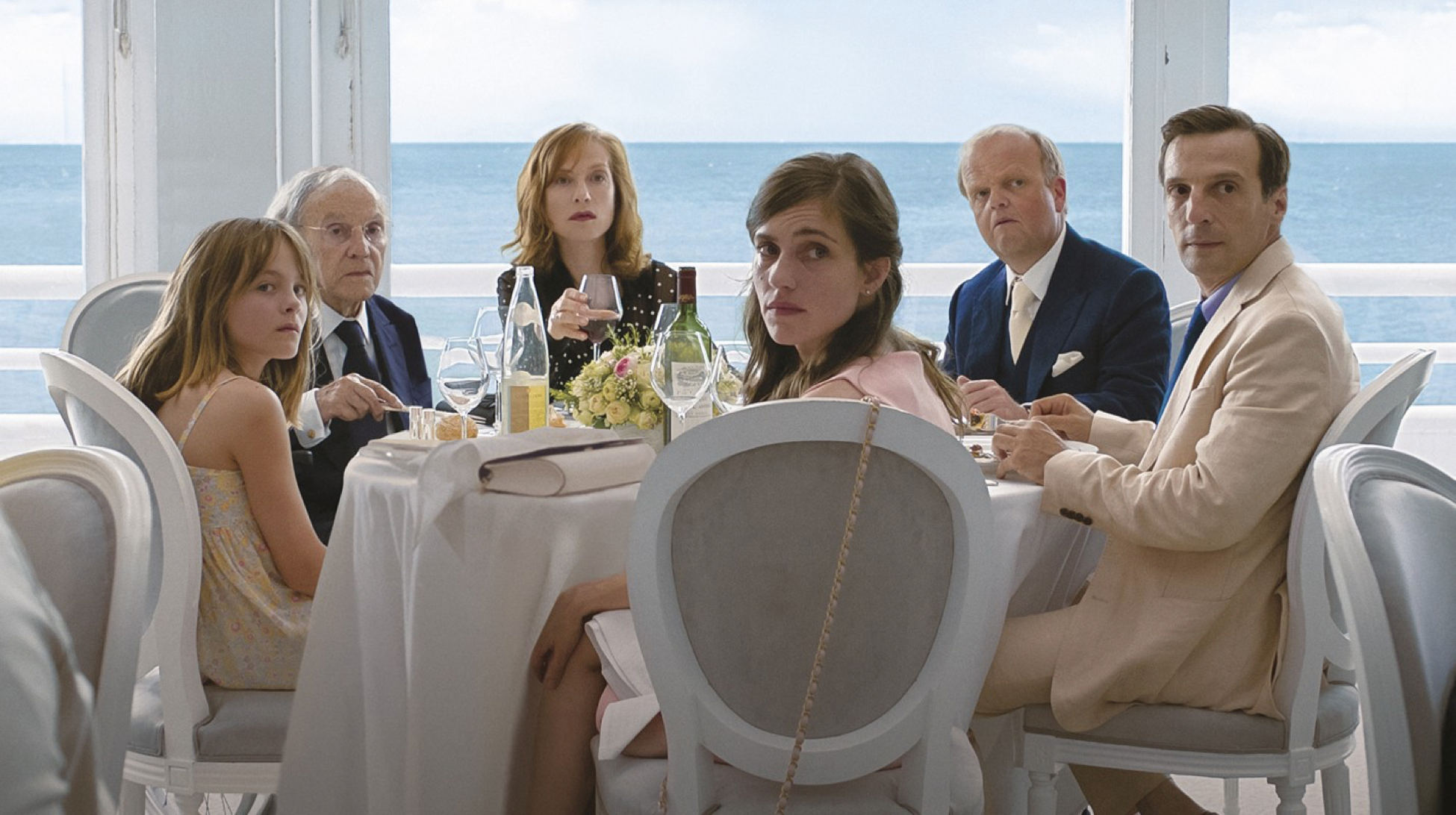
HAPPY END
Director Michael Haneke
Genre: Drama
Haneke just made a sequel to AMOUR!? I might be the only person in the world excited about the prospects of a Haneke-verse, but the cruel cynicism of the man never ceases to excite me. With HAPPY END, this is perhaps more the case than ever. How a 75-year-old filmmaker understands social media better than Jason Reitman did when he made MEN, WOMEN, & CHILDREN is beyond me, but the part that really excited me is Haneke’s resolutely mean-spirited approach to Europe’s refugee crisis. Uncompassionate and insensitive in regards to such a hot button issue, Haneke might actually be the perfect person to address Europe’s growing political divide. Contemporary filmmakers seem to be squarely positioning themselves with a sense of naive optimism about the state of the world (with the likes of Cannes favorites DHEEPAN and I, DANIEL BLAKE leading the pack), which is why a cynic like Haneke is a perfect counterbalance. HAPPY END isn’t about sticking it to the man or fighting inequality. Au contraire, Haneke is more than ready to admit that every Caucasian household in Europe wants nothing to do with the new African family down the road, and the film’s nail-bitingly awkward finale perfectly encapsulates what many Europeans are thinking, but too proud to say. It’s a study of privilege, and the dire consequences it can have on a family that only communicates through violence. It’s mean, but also true. Coming to terms with our internalized racism (as much as we’d love to play a good samaritan once in awhile) is a good thing. If we aren’t willing to do it, Haneke is more than happy to pull that trigger, resulting in a film that virtually trolls its audience for a full 110-minutes.

LOVELESS
Director: Andrey Zvyagintsev
Genre: Drama
It’s no secret that Andrey Zvyagintsev is among the great 21st century auteurs. With a catalogue of five brilliantly calculated feature outings, the director’s oeuvre is at both times gut-wrenching in its bleak, oppressive worldview, and biting in its political commentary. Coasting through the cinematic landscape as a Russian peer to the Romanian New Wave, Zvyagintsev’s work is at both times wildly entertaining and profound, making use of a heightened formal style that is oft absent in Romania’s film scene, but clearly draws great influence from the works of Tarkovsky and company. With LOVELESS, a film about a child’s disappearance in the wake of his parents declining marriage, Zvyagintsev has not only found a solid follow-up to his outstanding bureaucratic fever dream, LEVIATHAN, but has taken it upon himself to go back to his roots, telling a story that is fundamentally human in nature. Its brilliant depiction of class structure never draws attention to a greater social argument, but allows Zvyagintsev to visually signal the growing rift in our protagonists’ lives. Much of the political critique is left as background noise, informing us of the milieu our characters inhabit, but not necessarily changing the outcome of events. Instead, LOVELESS is closest to Zvyagintsev’s riveting feature debut, THE RETURN, an unquestionably brutal paternal drama that didn’t cast quite the political net that Zvyagintsev’s ensuing films would. LOVELESS is an unflinching look at selfishness in family life, punishing its self-absorbed protagonists for their failure to empathize.



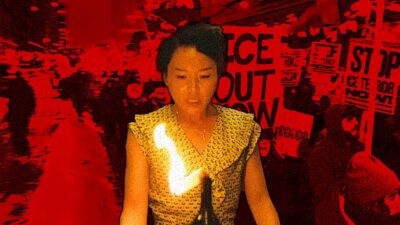
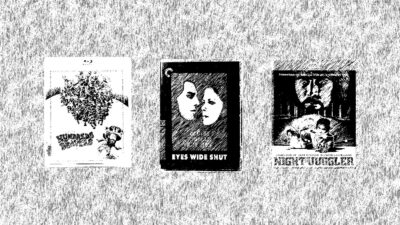











Comments